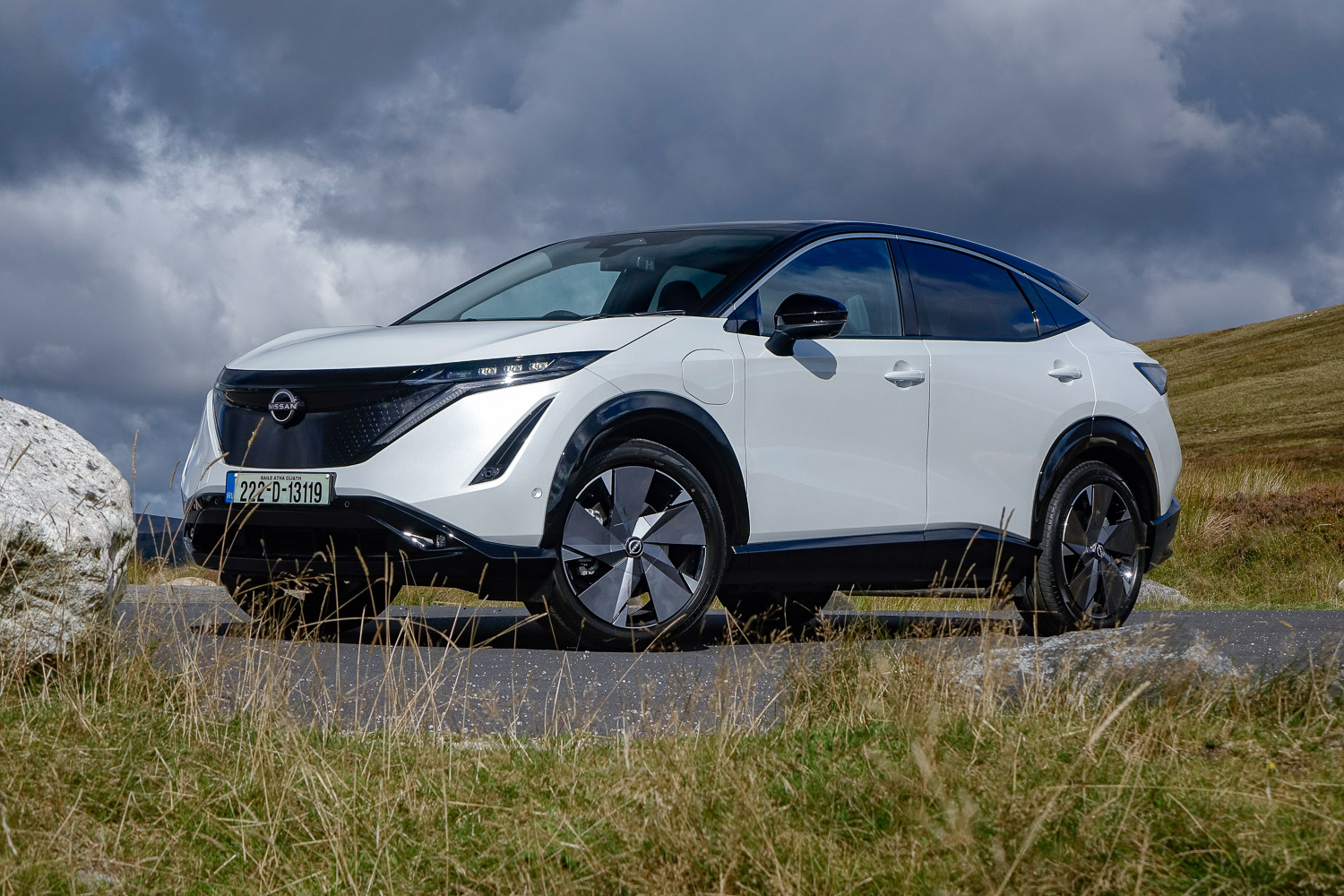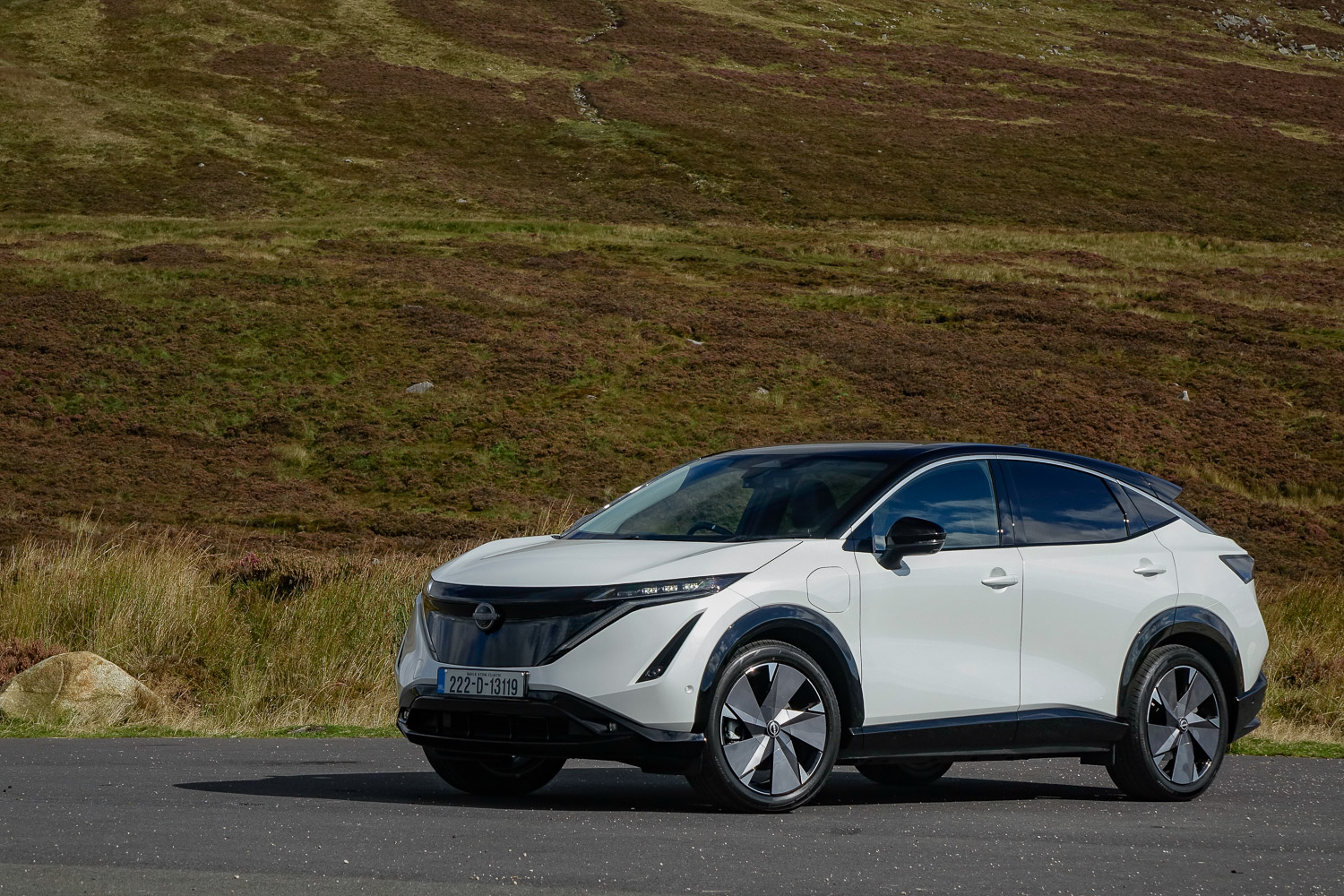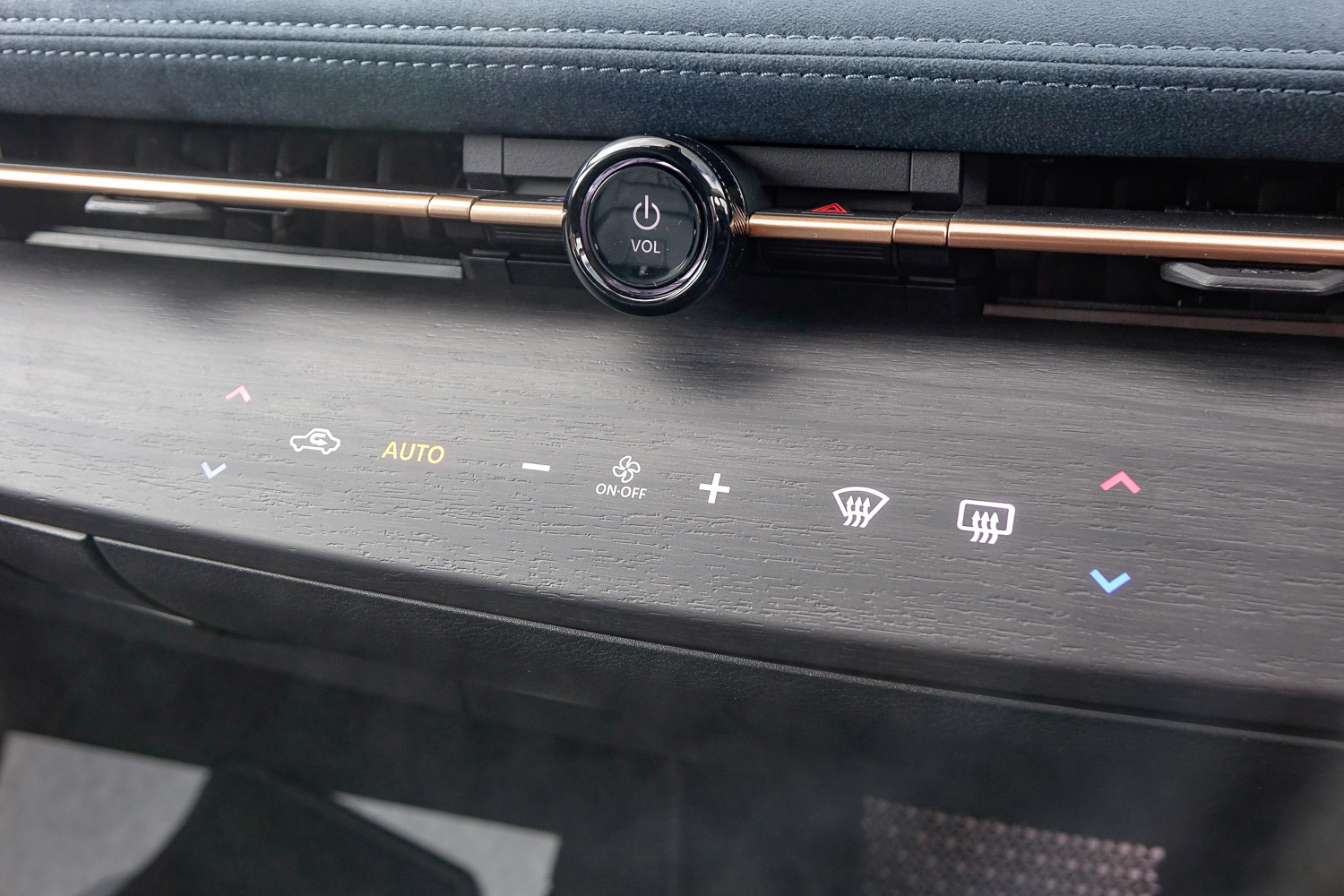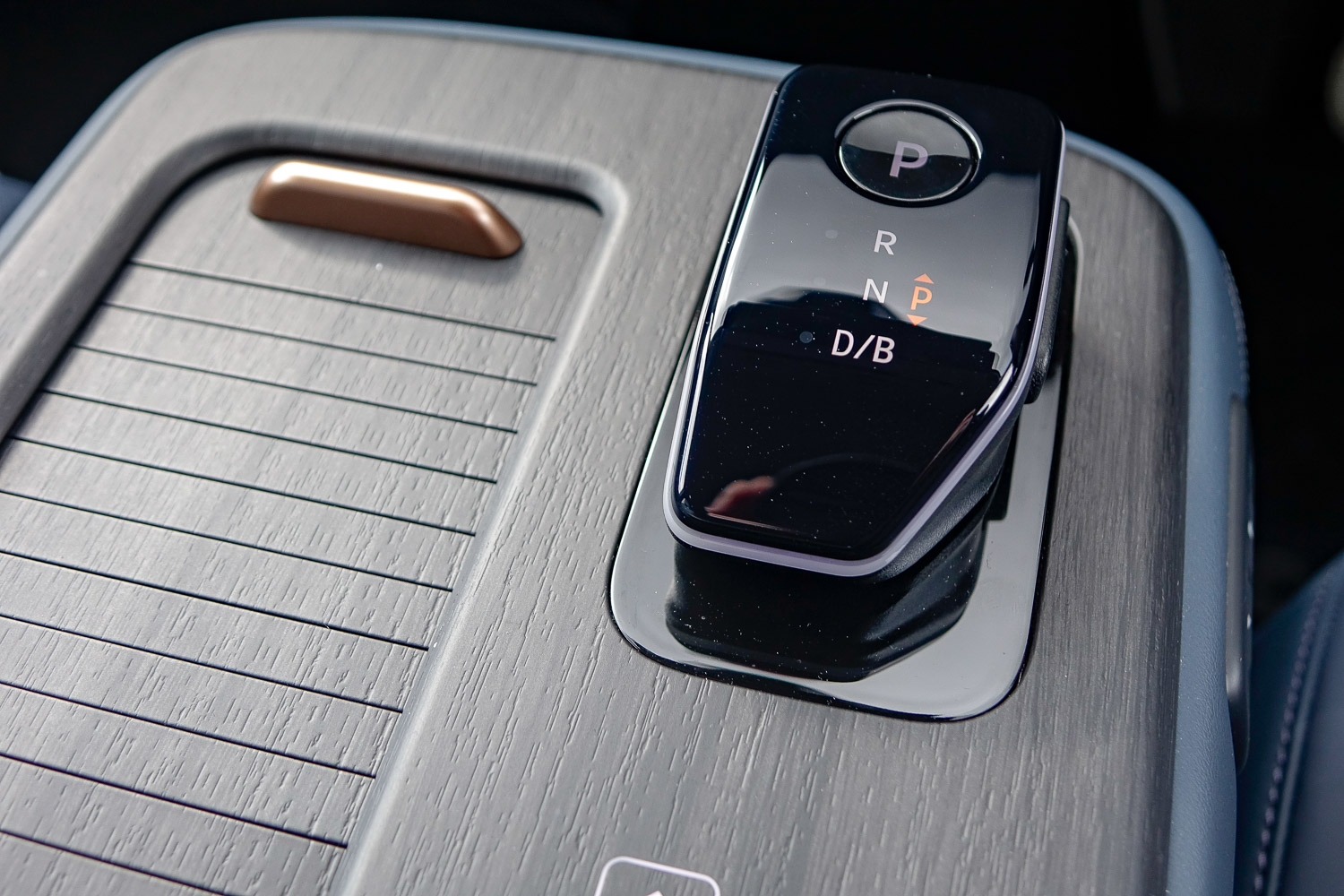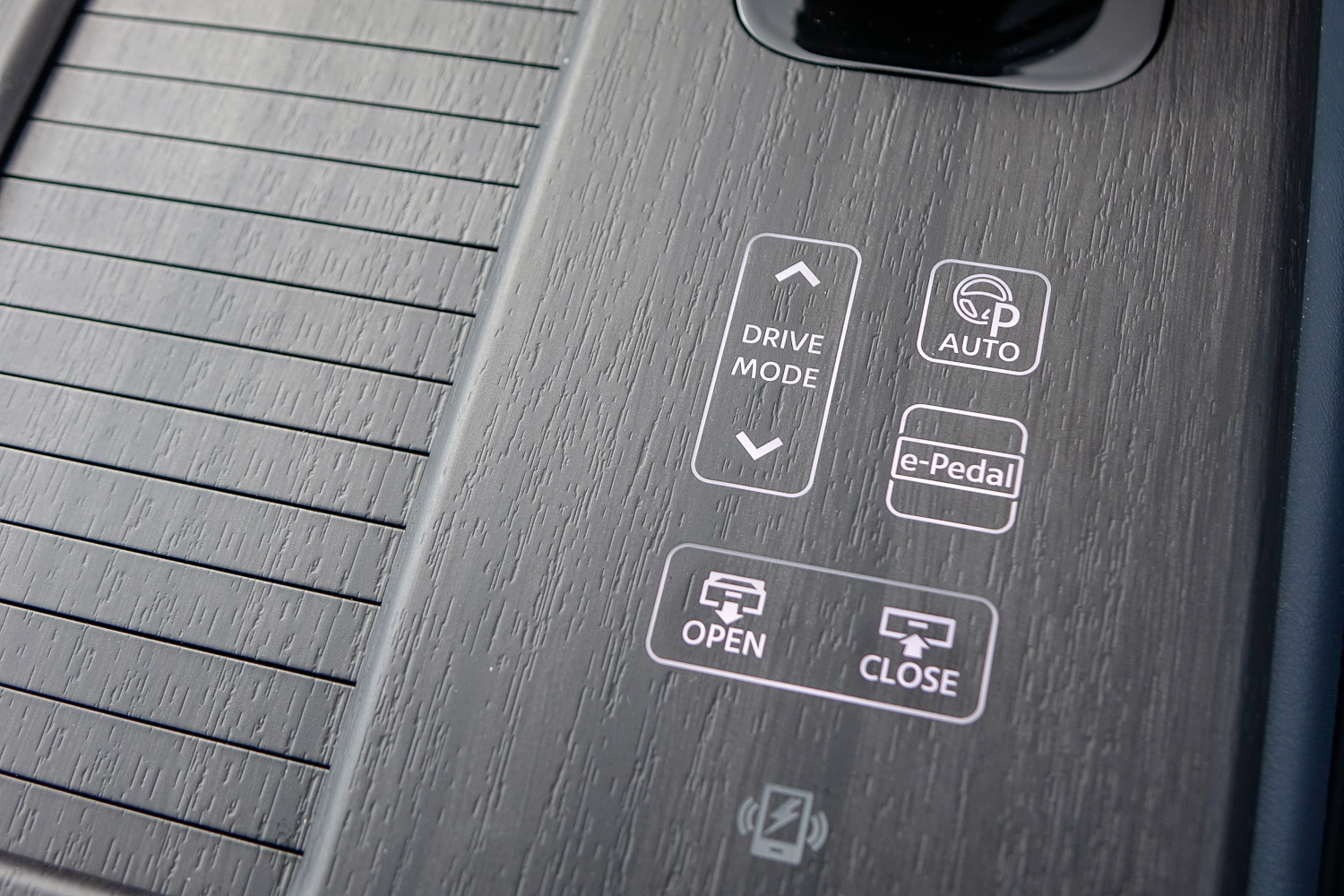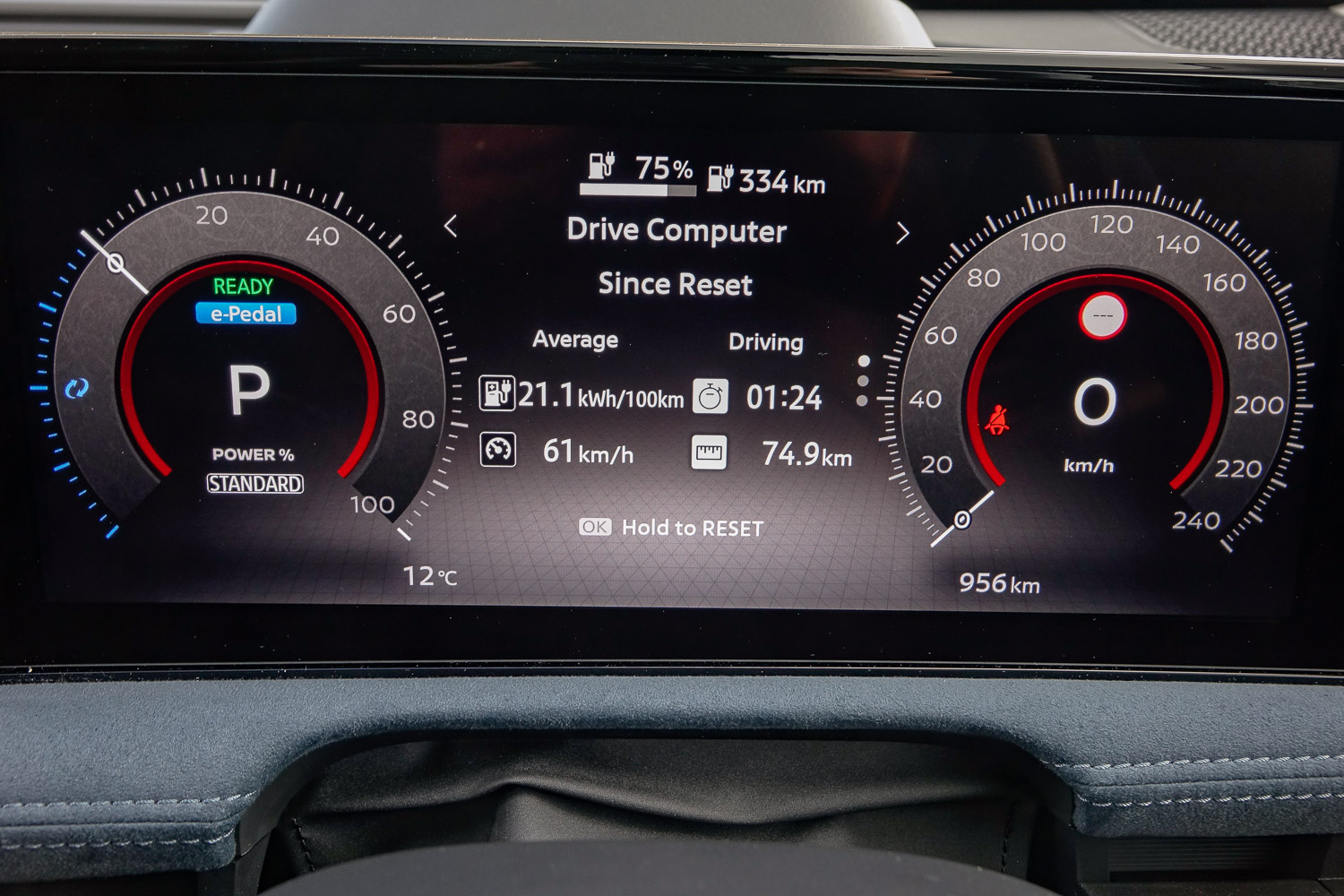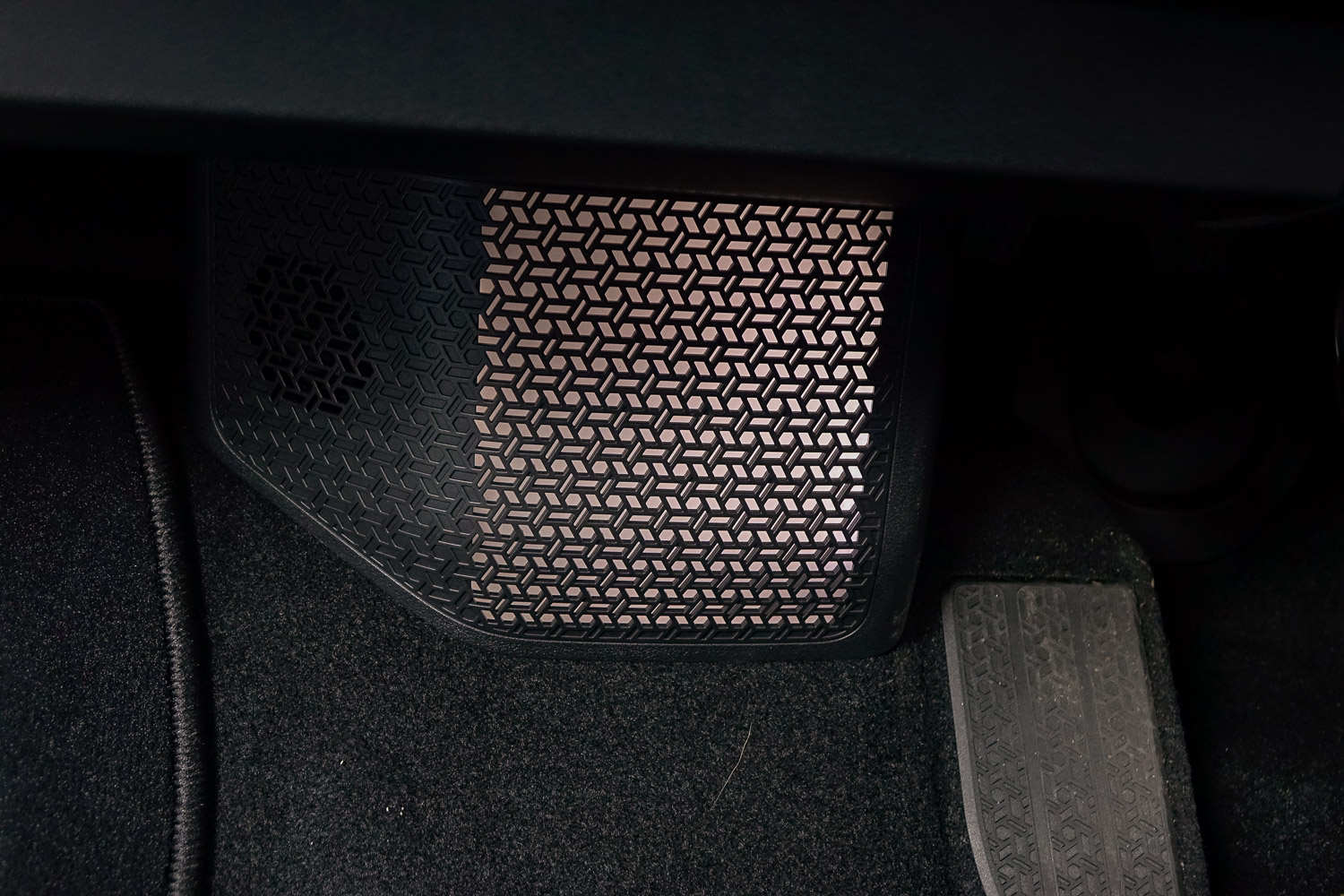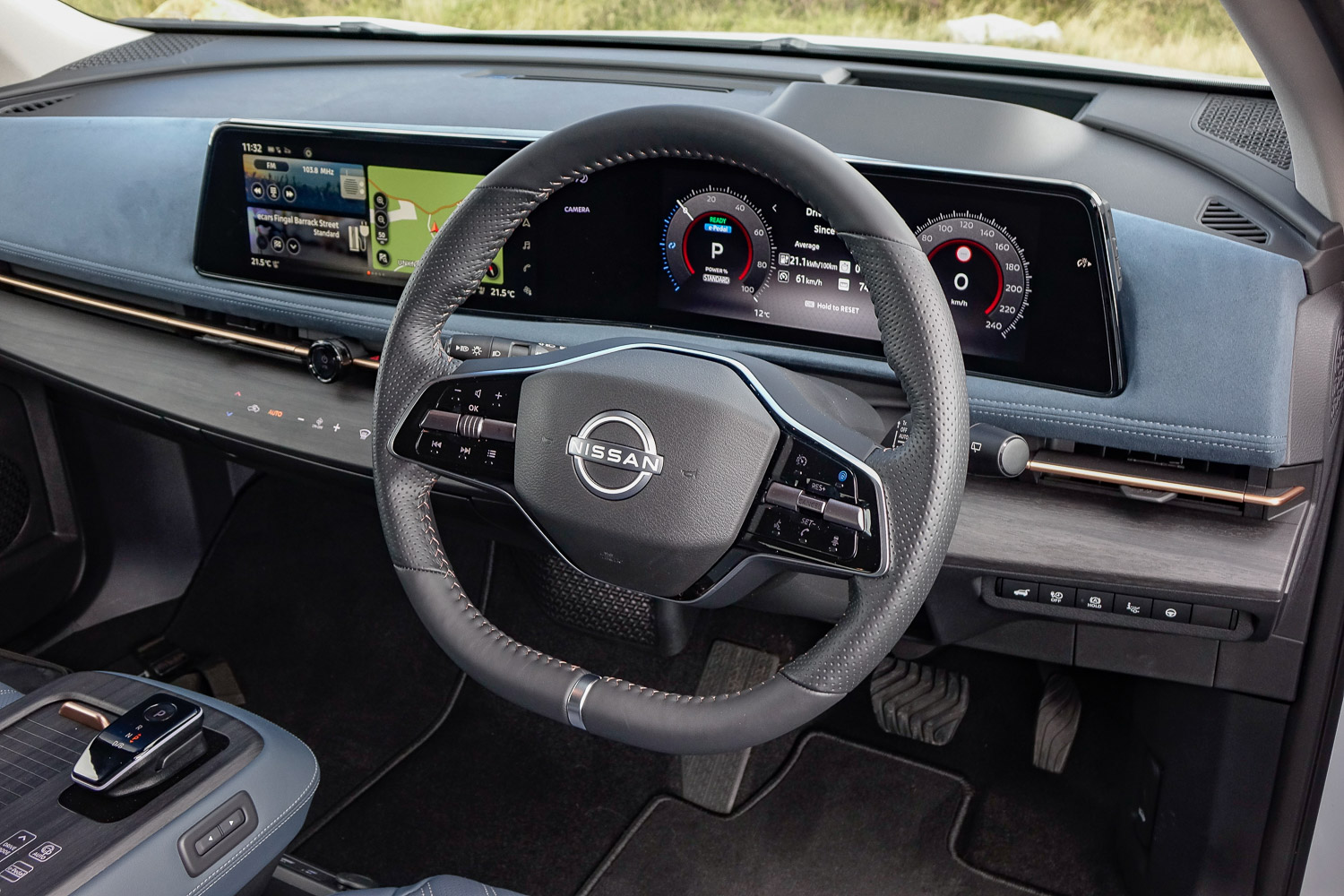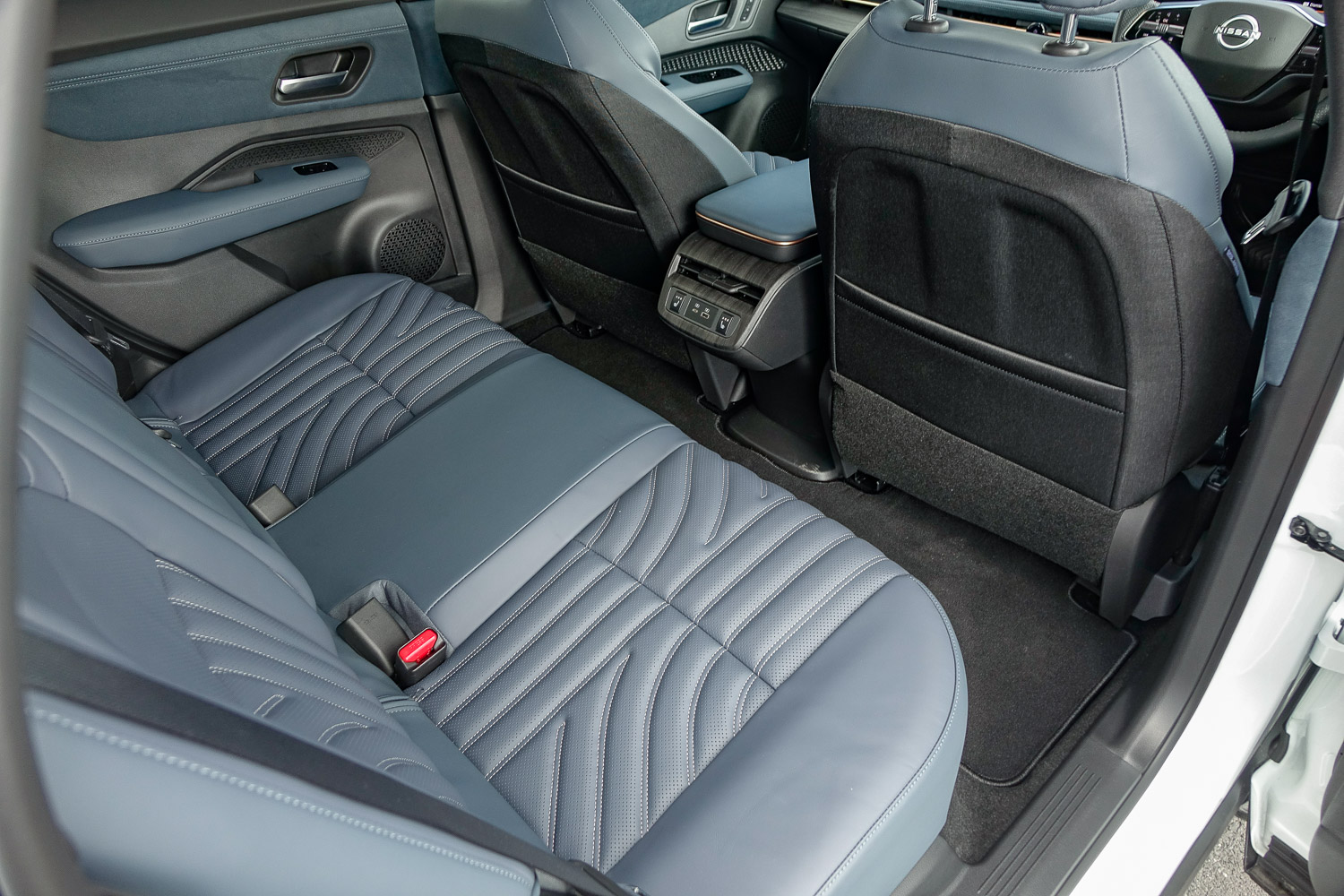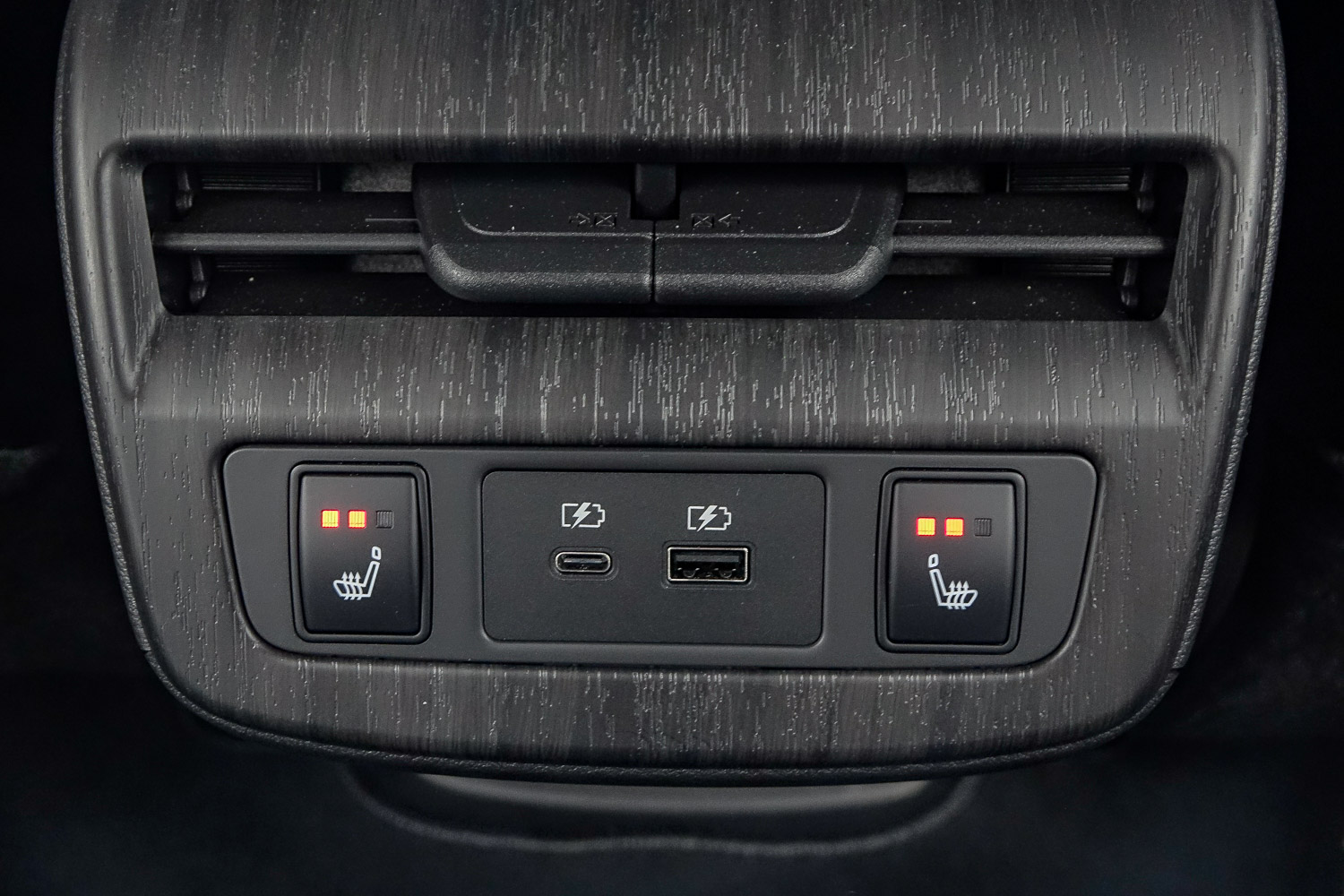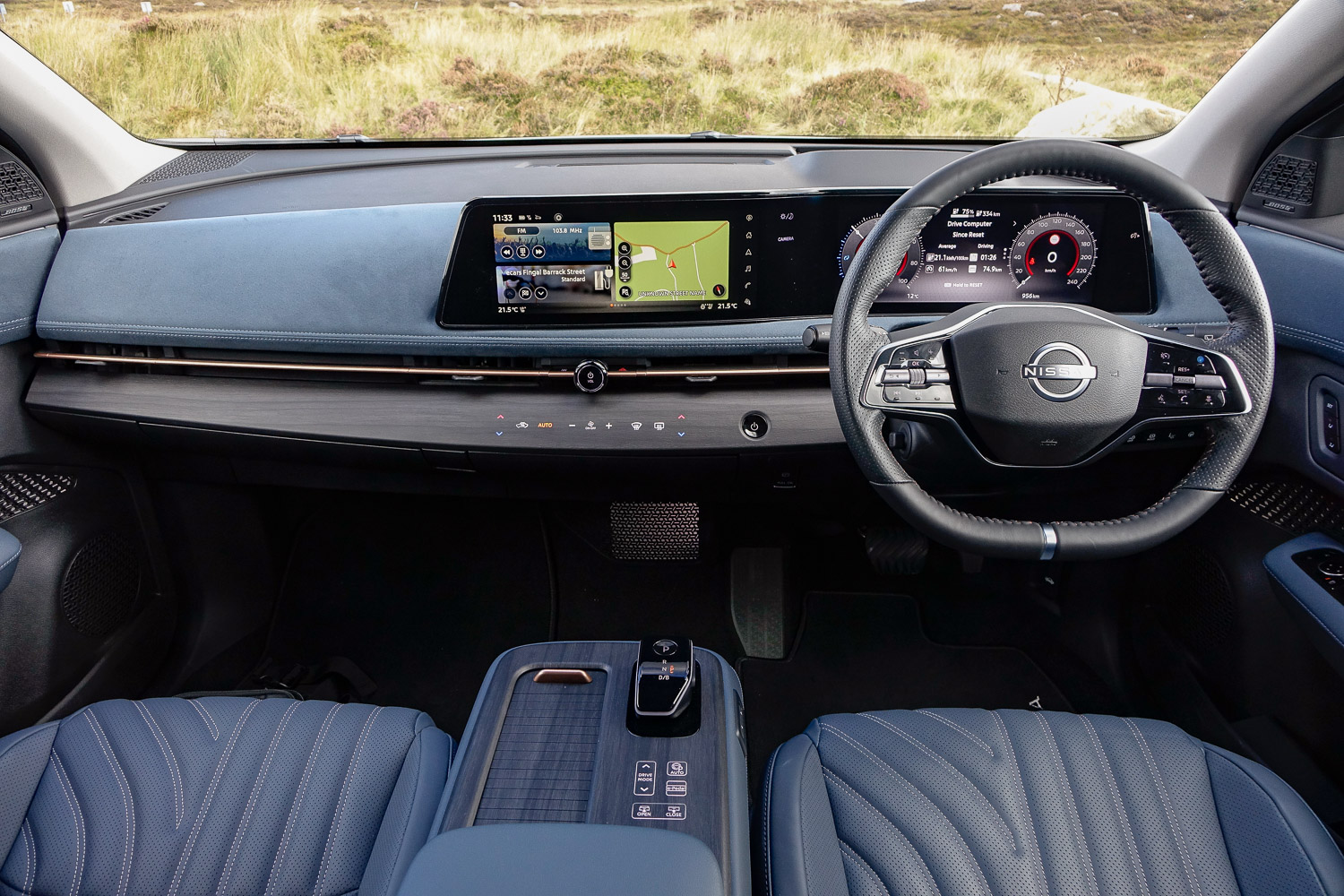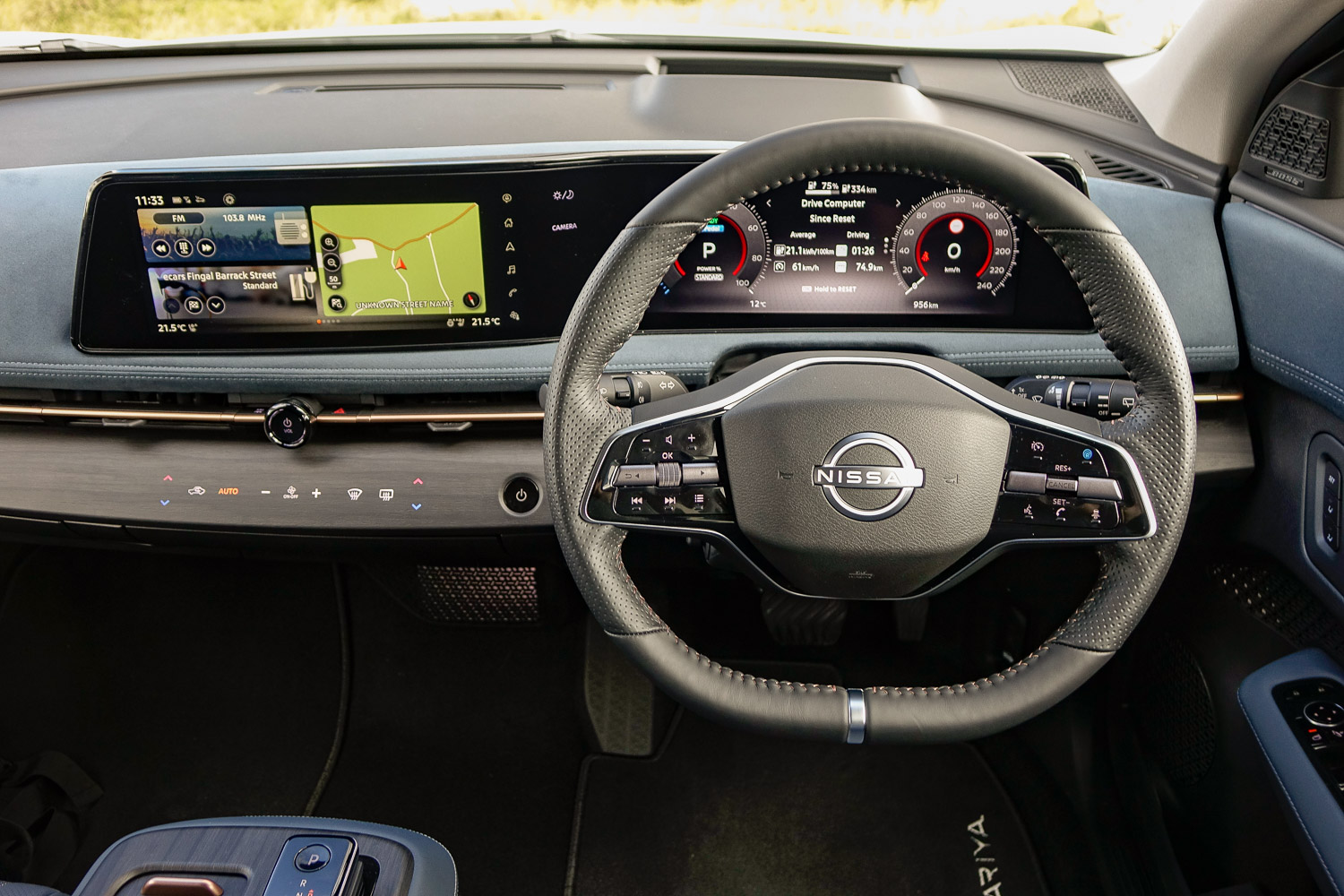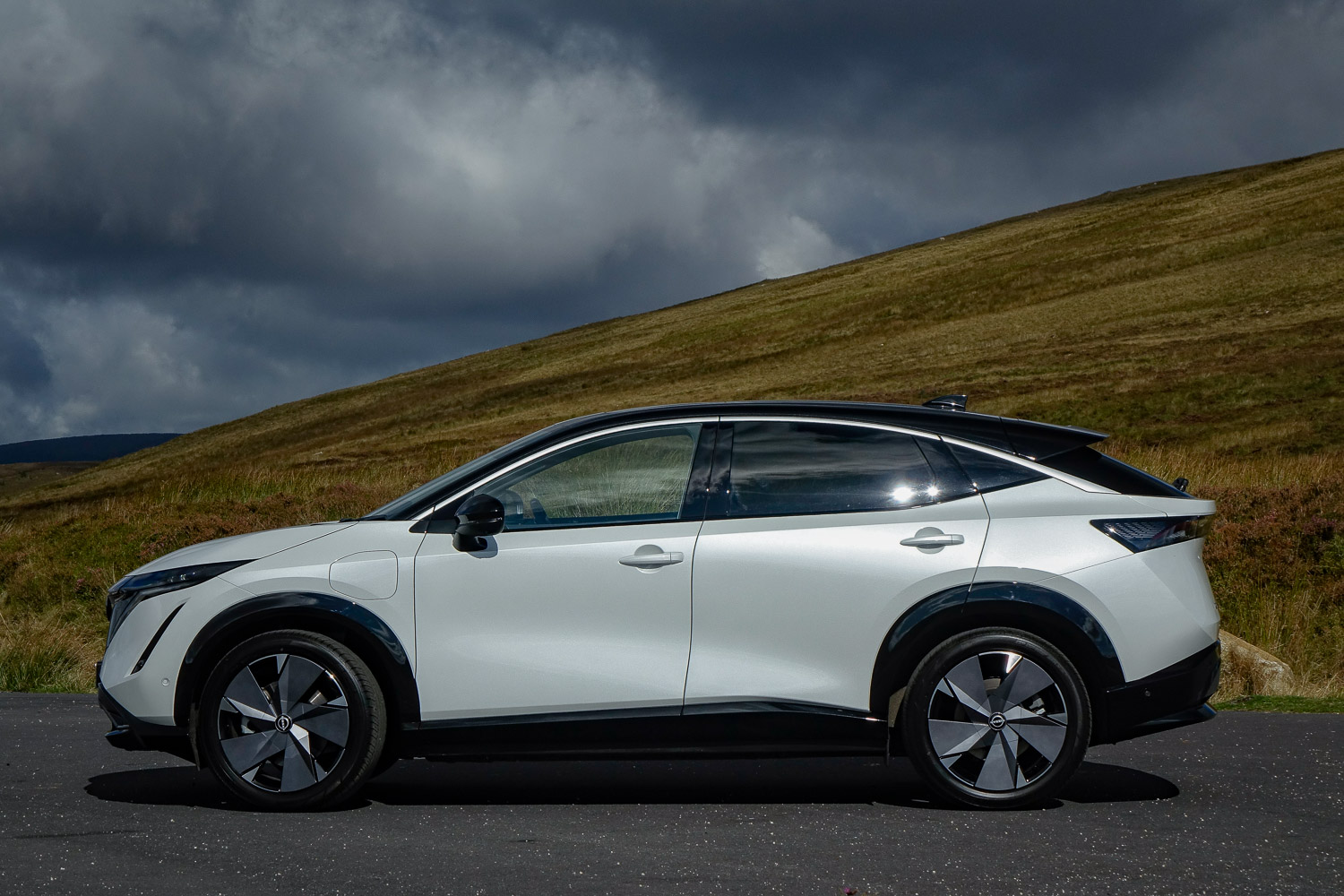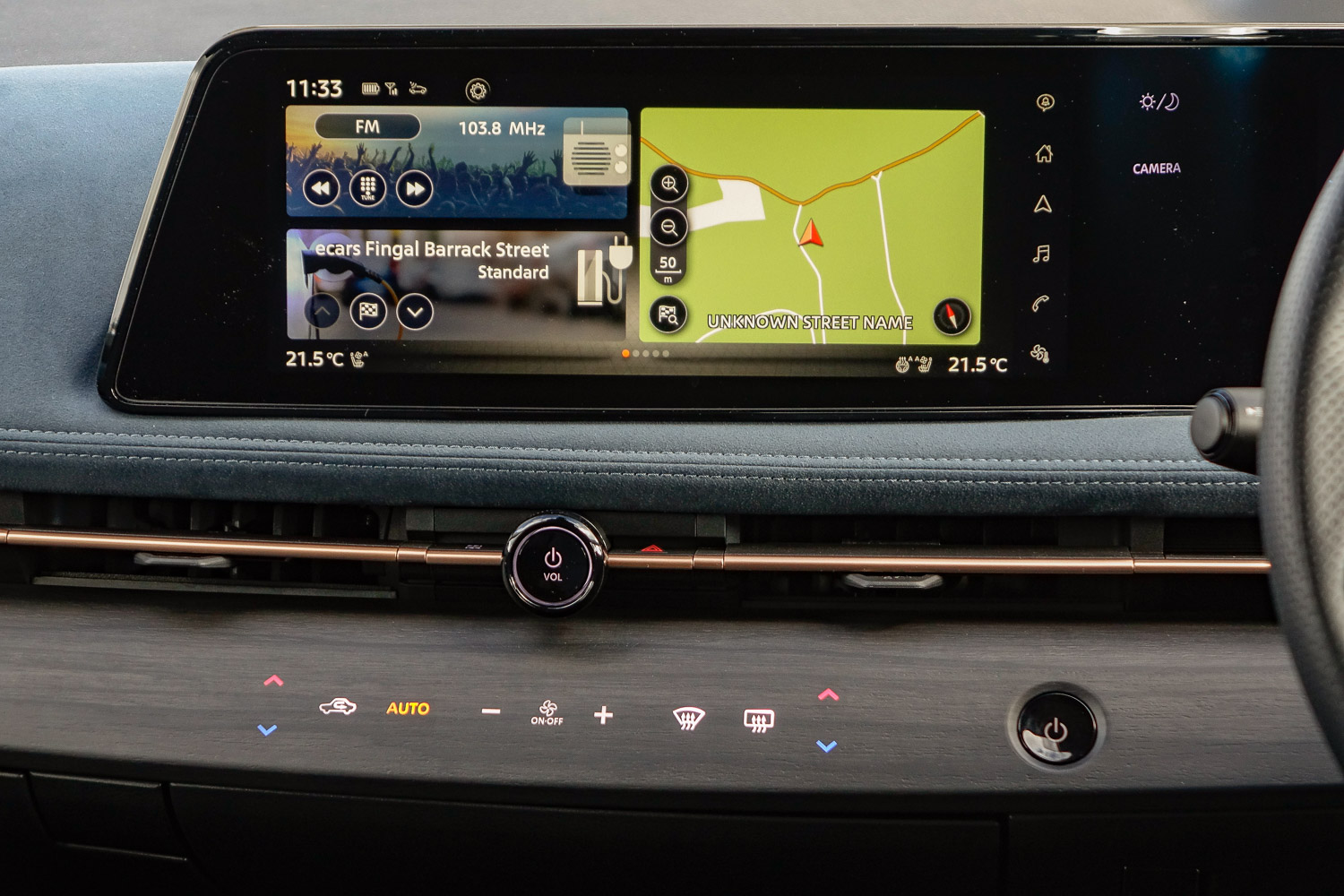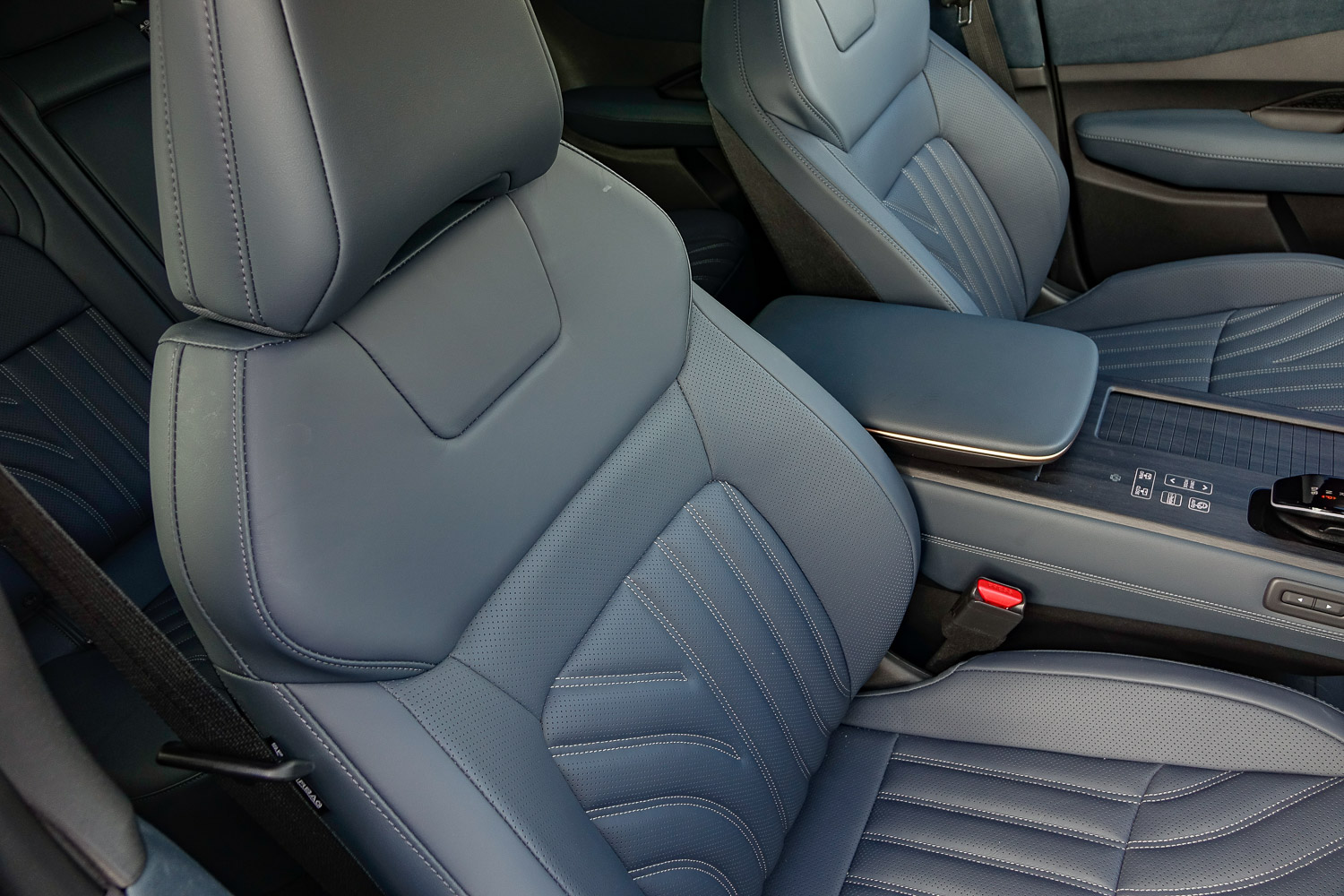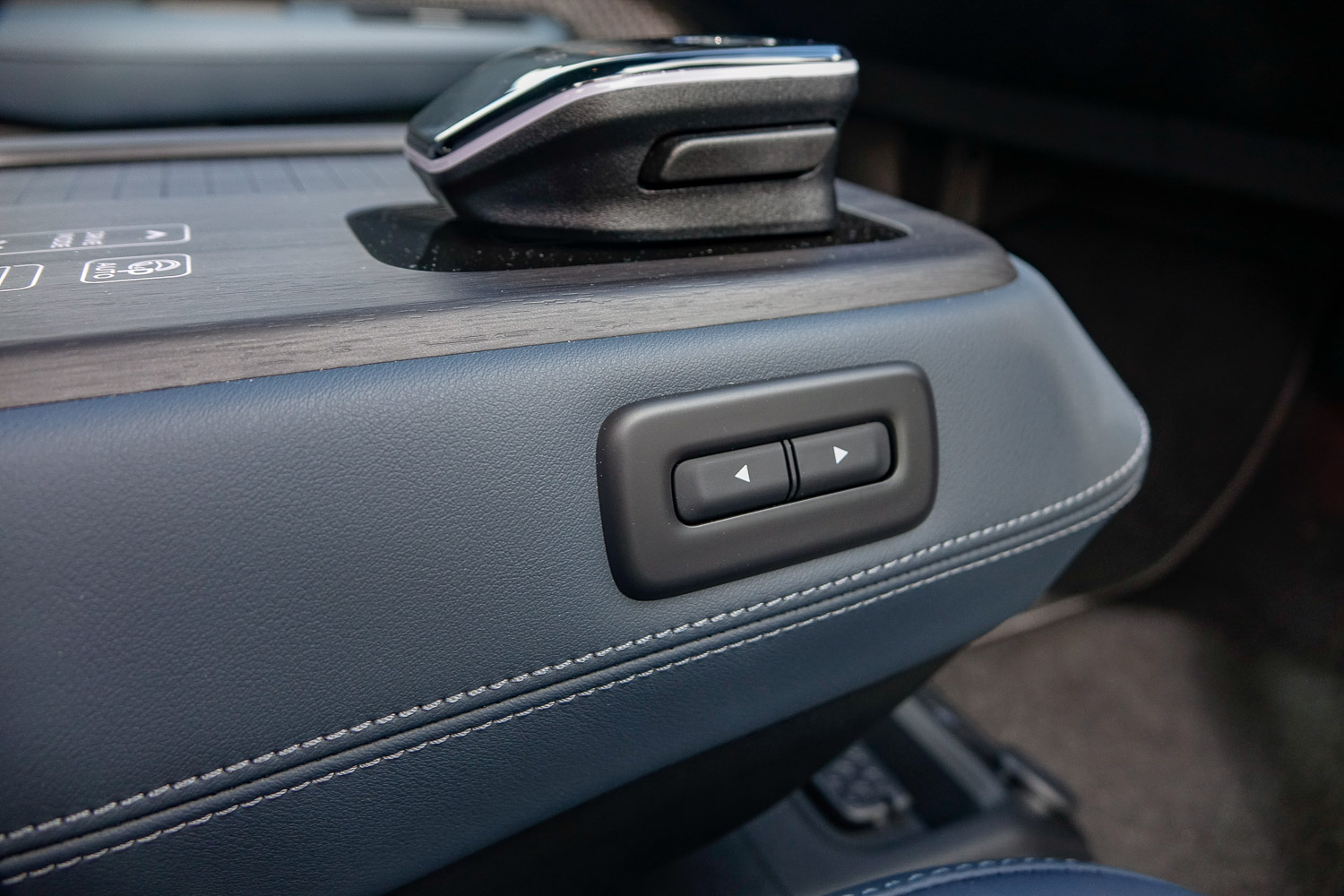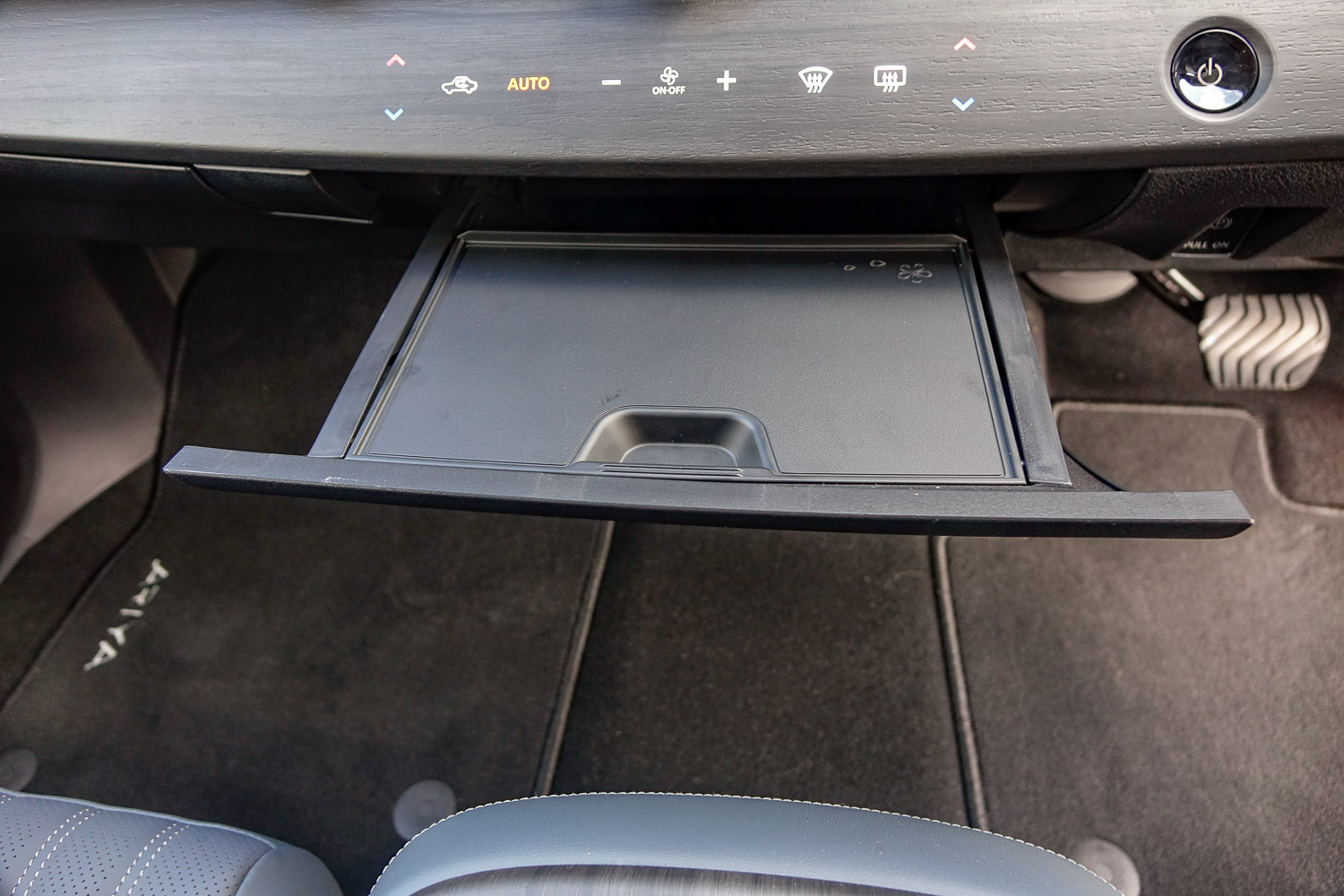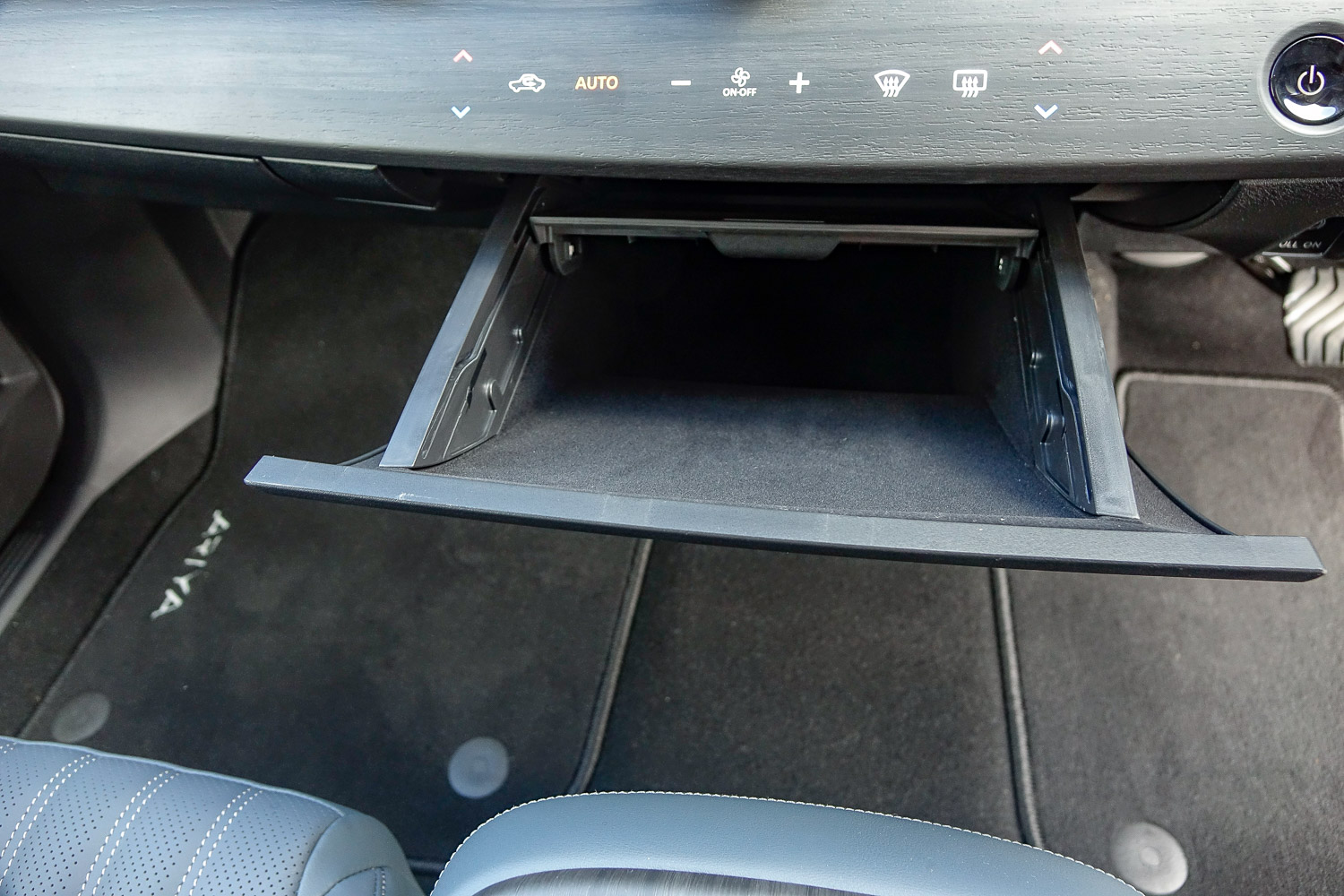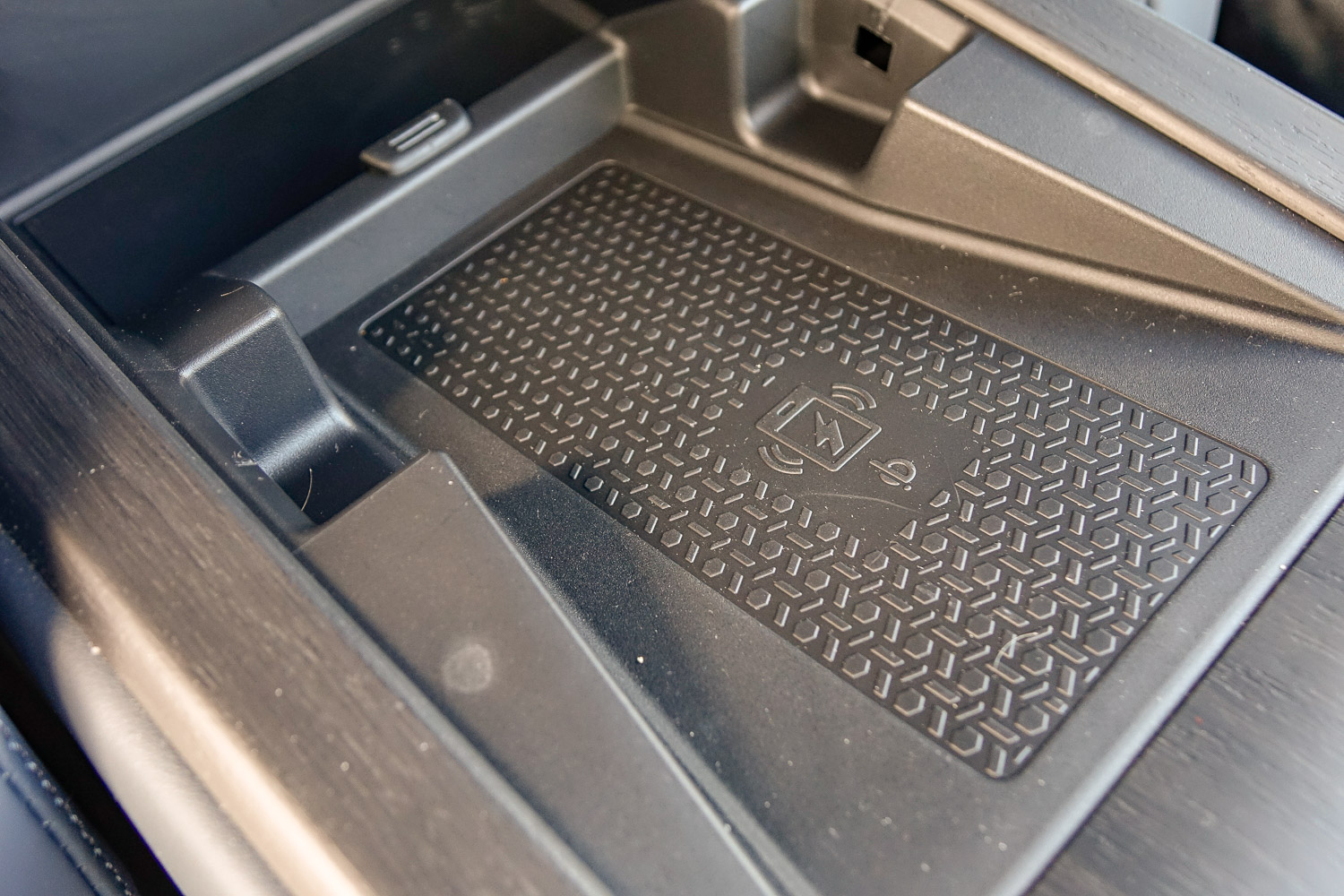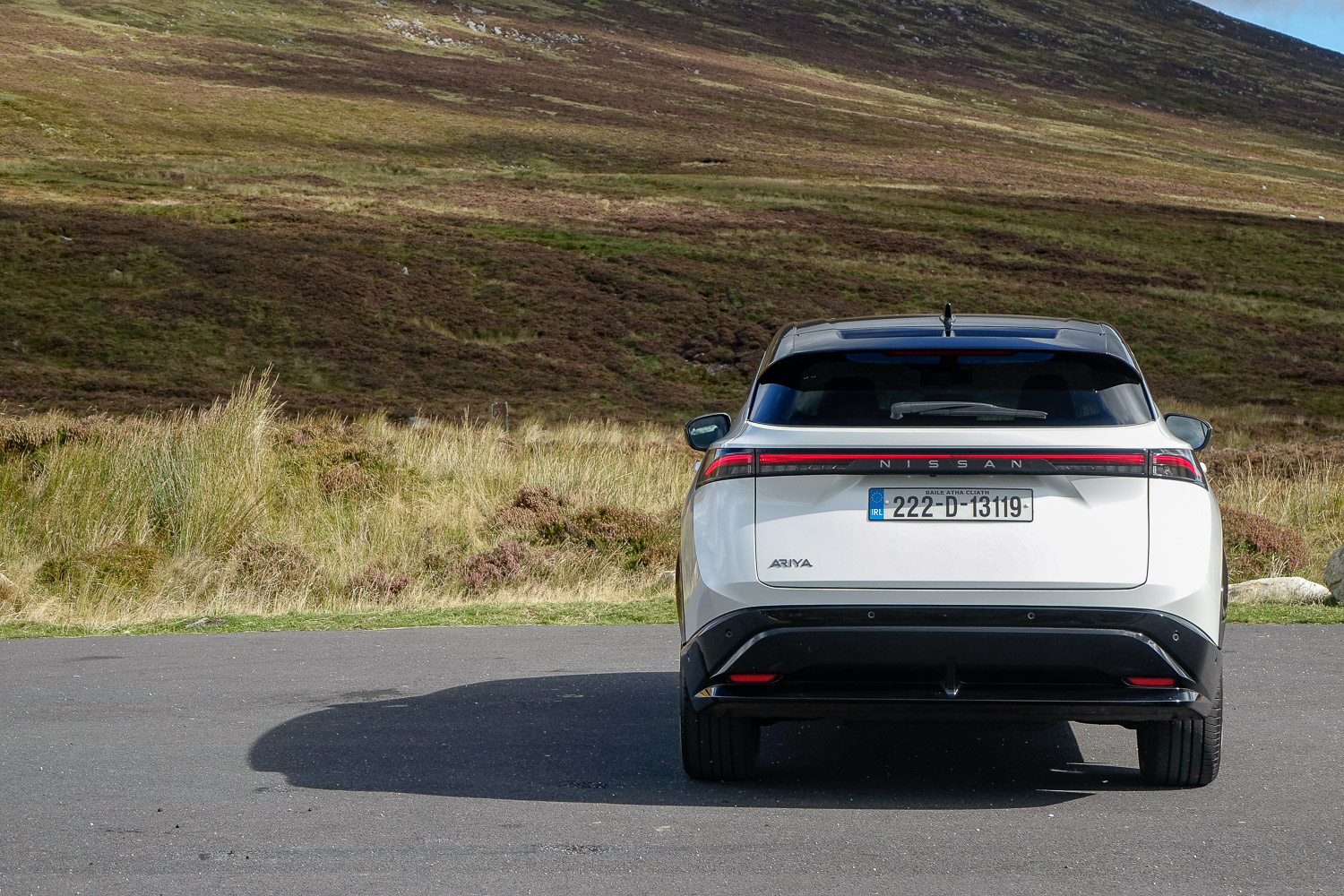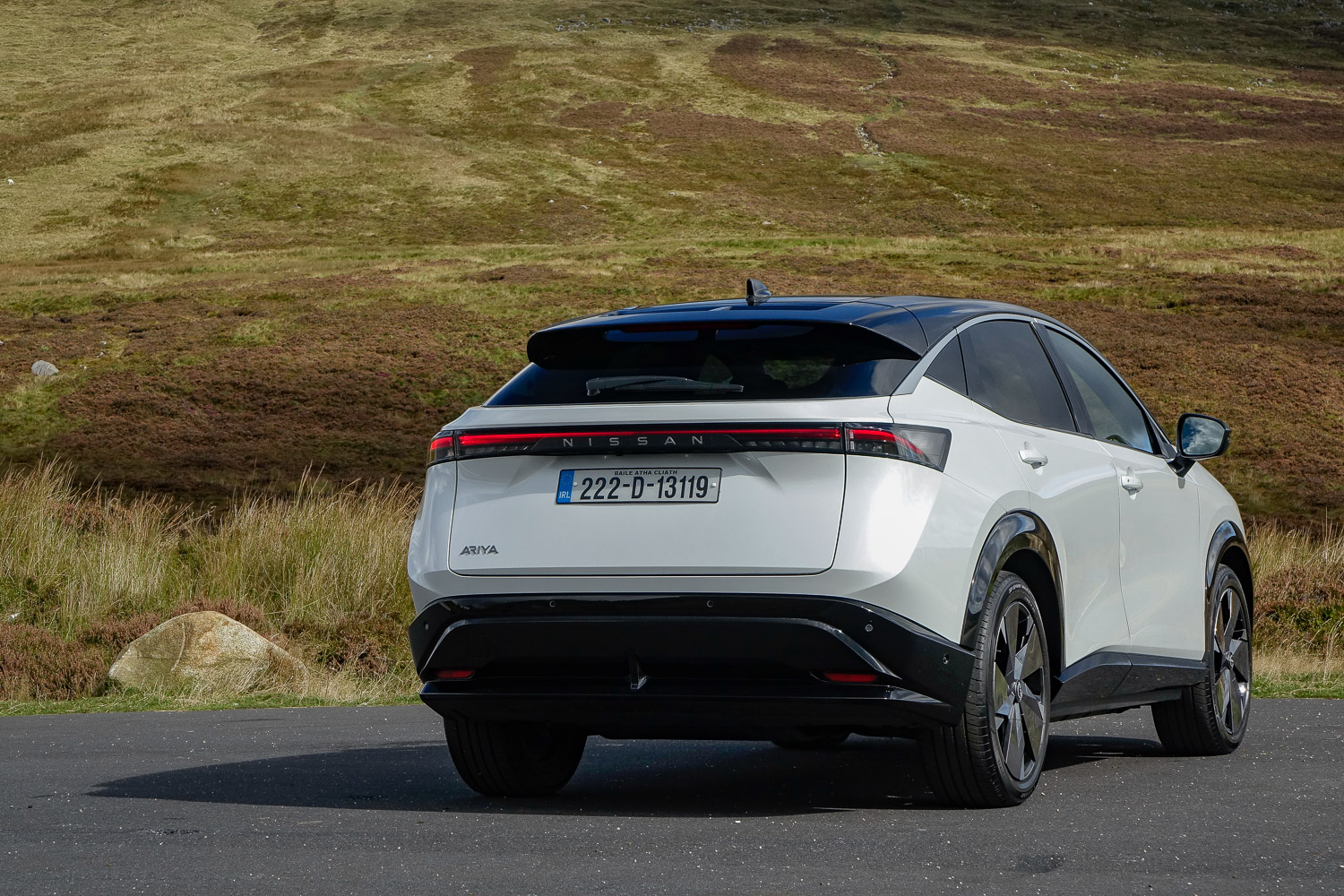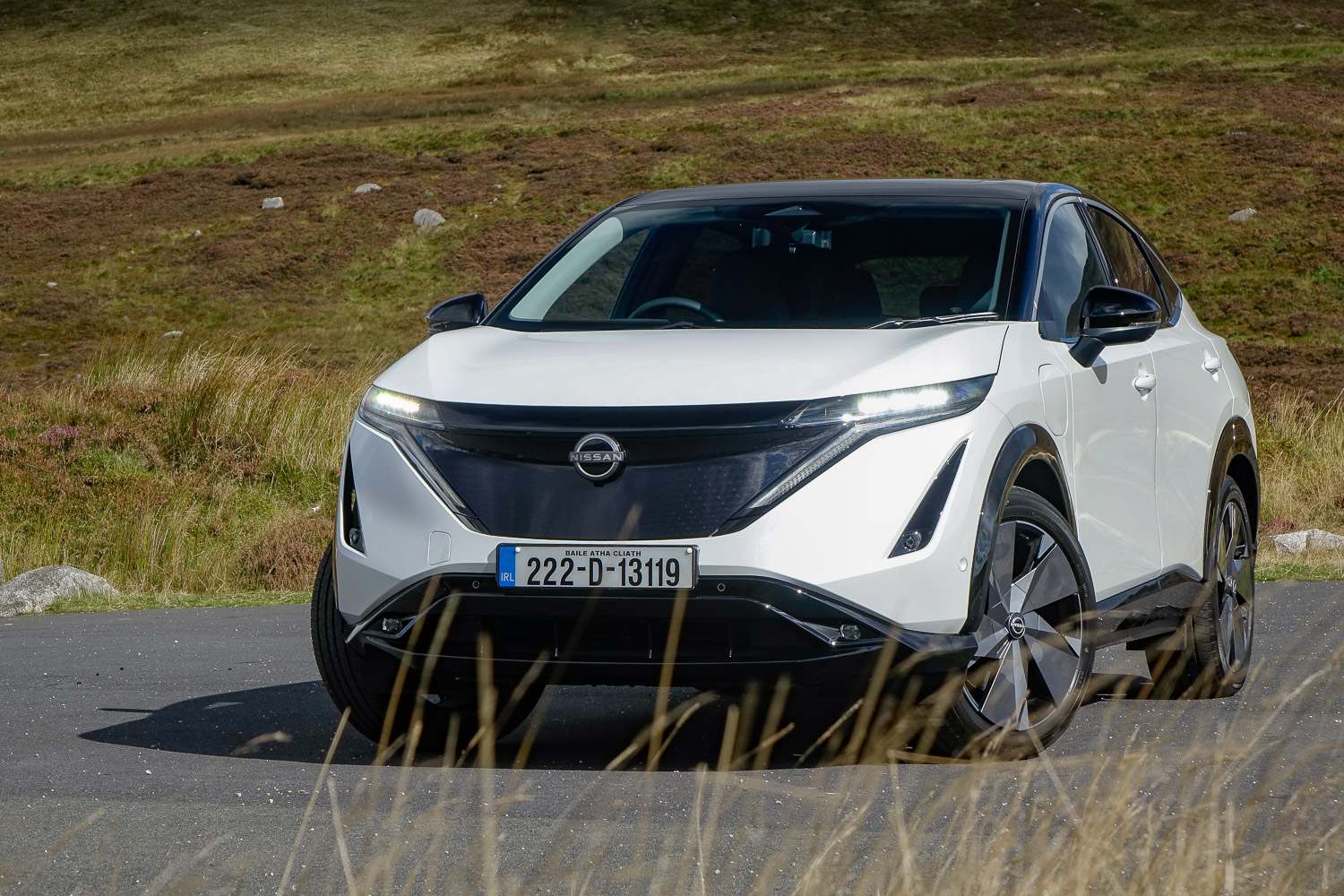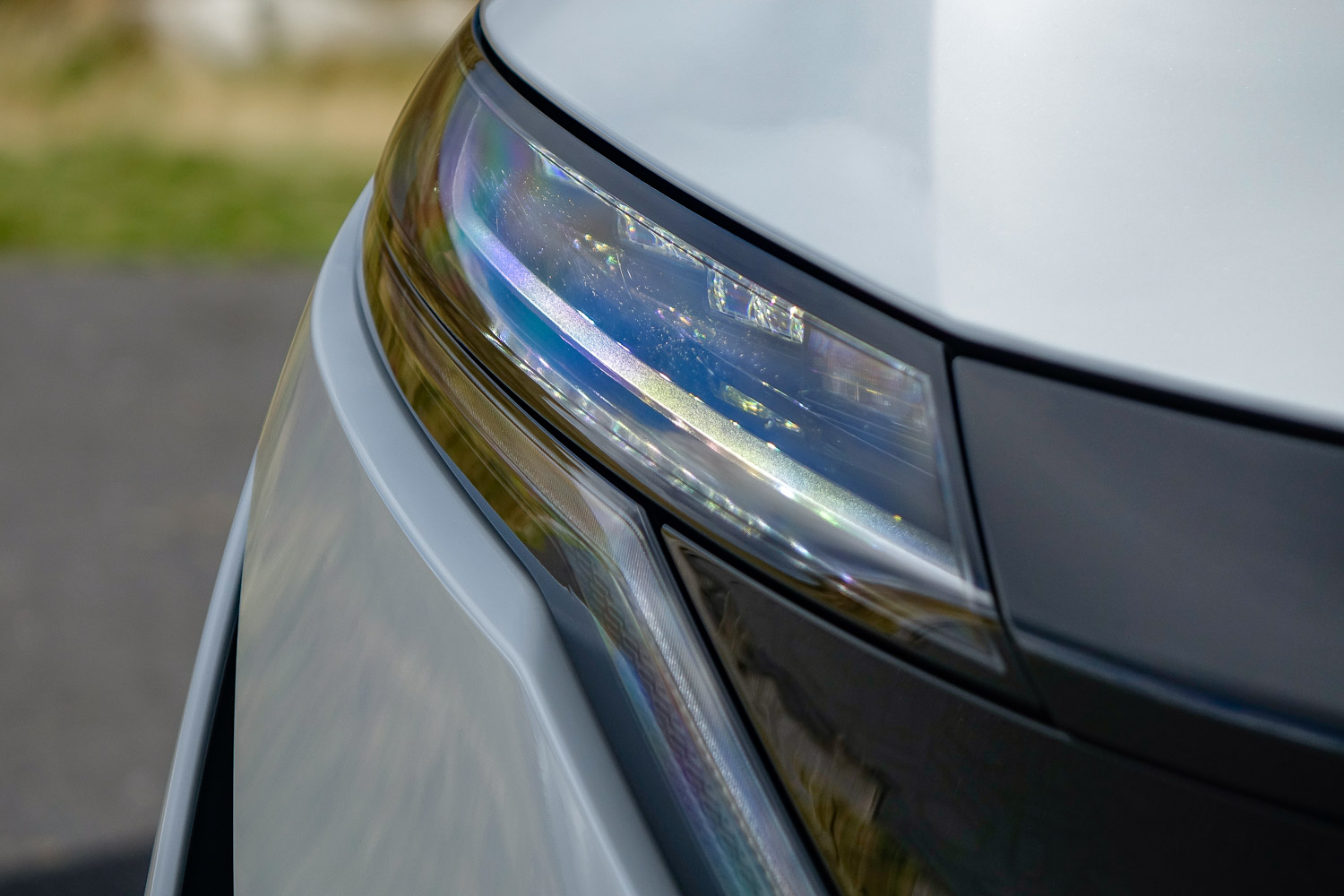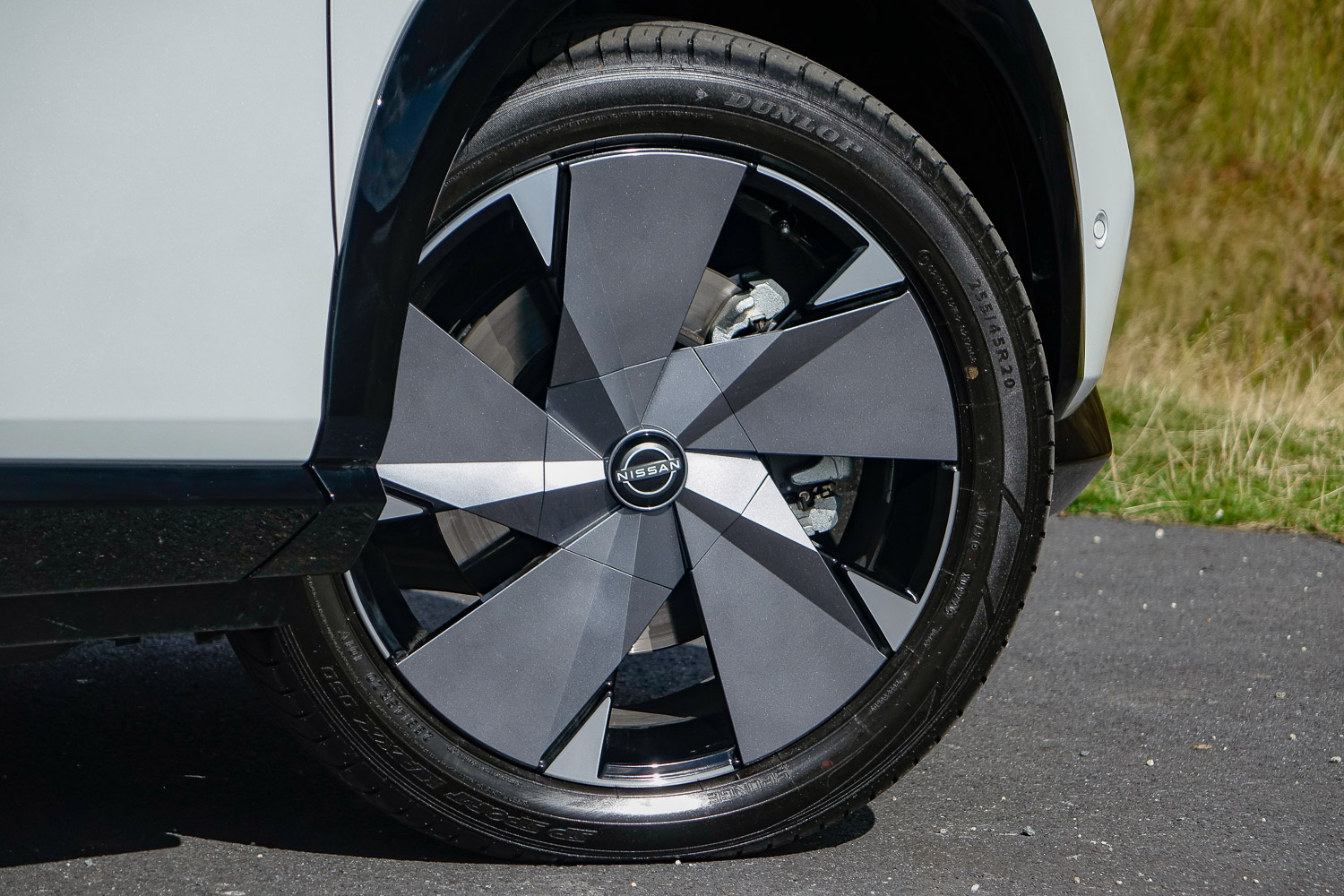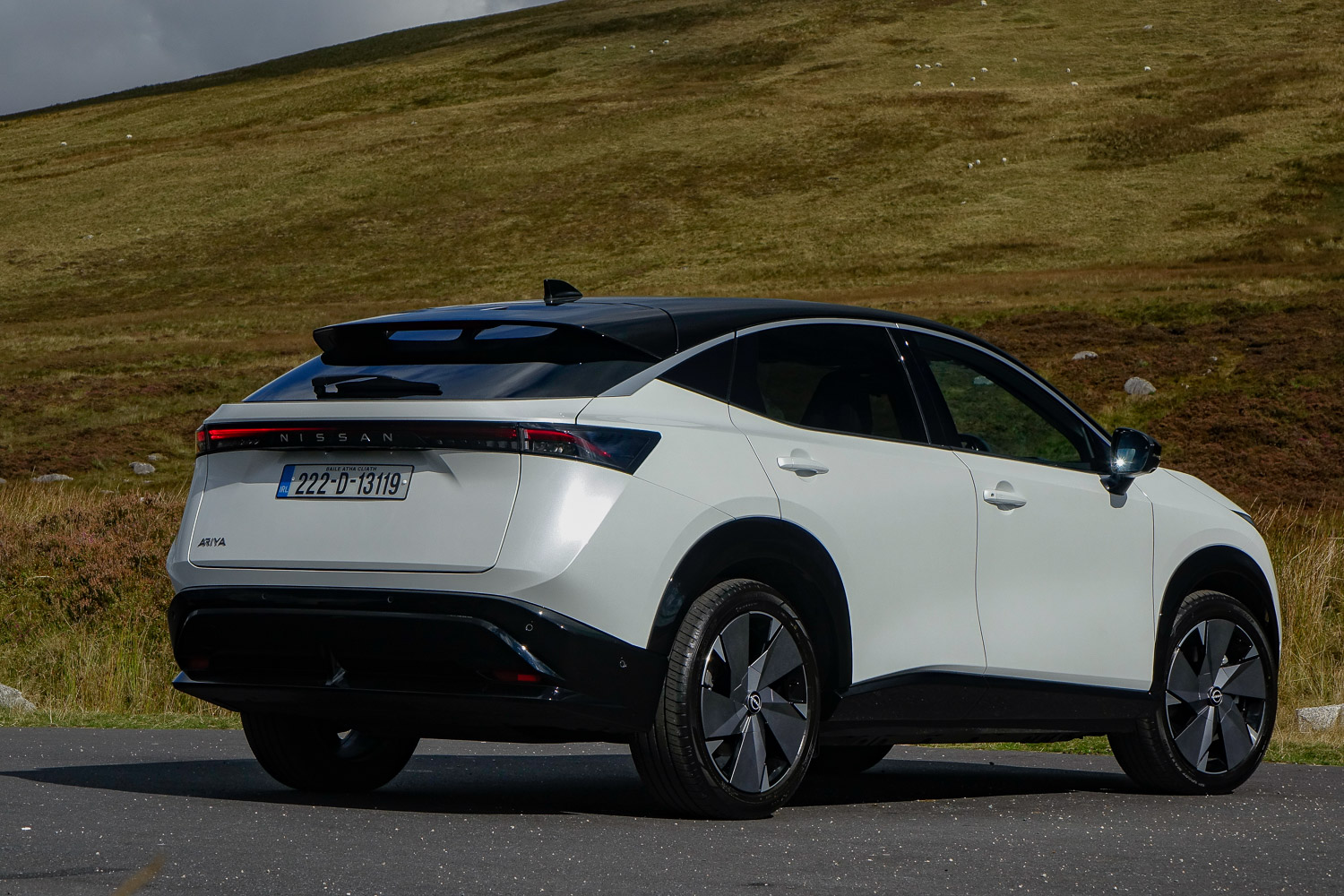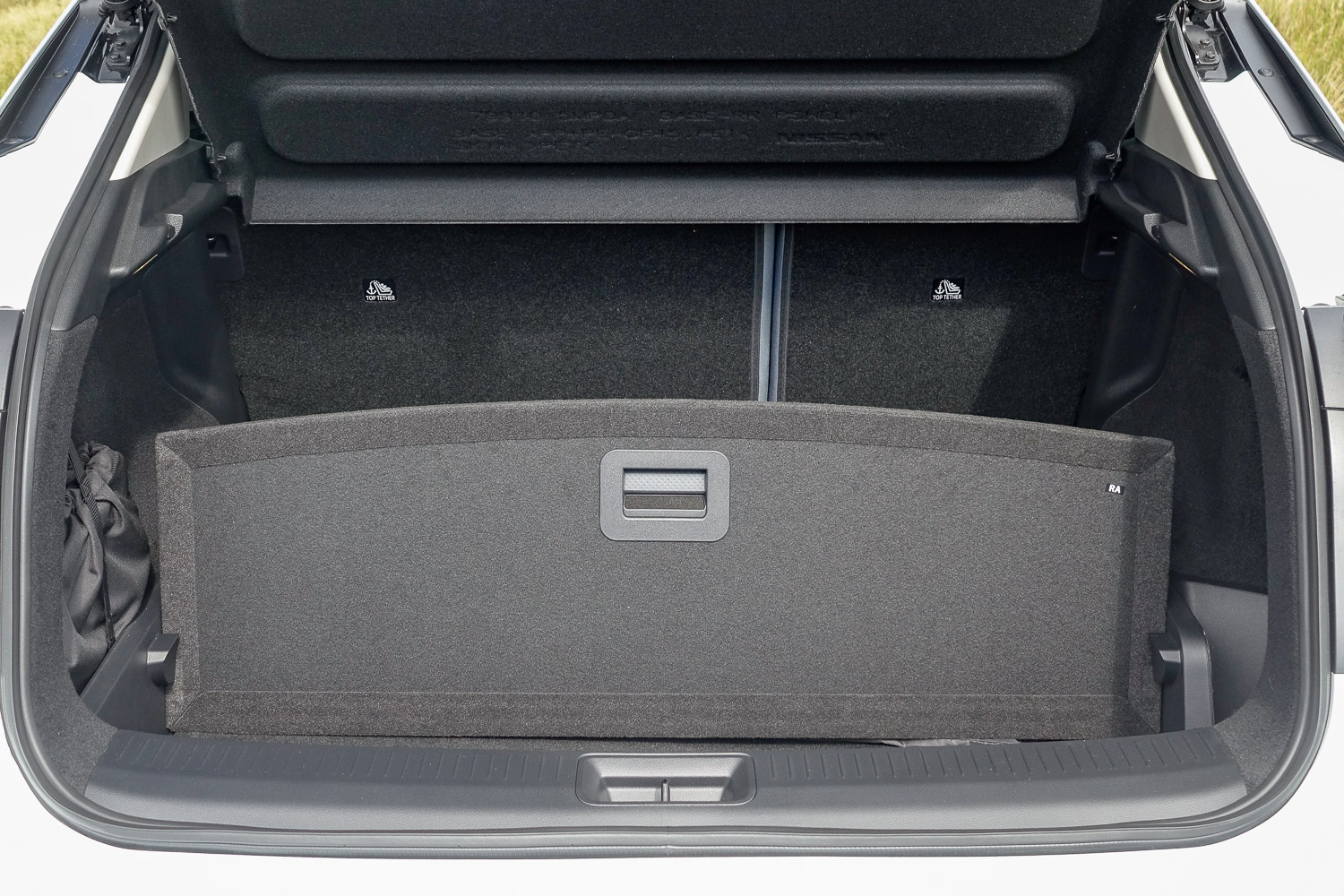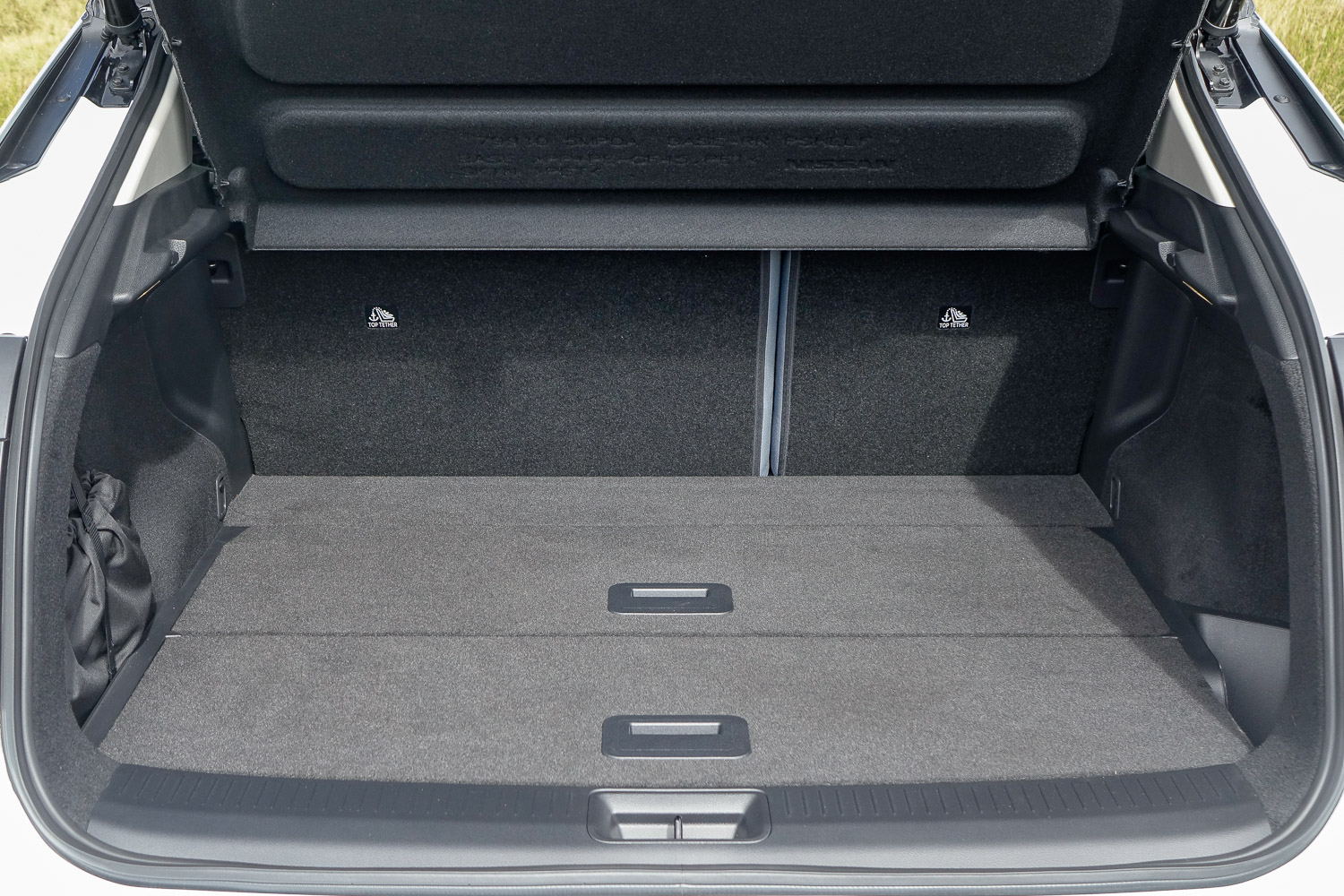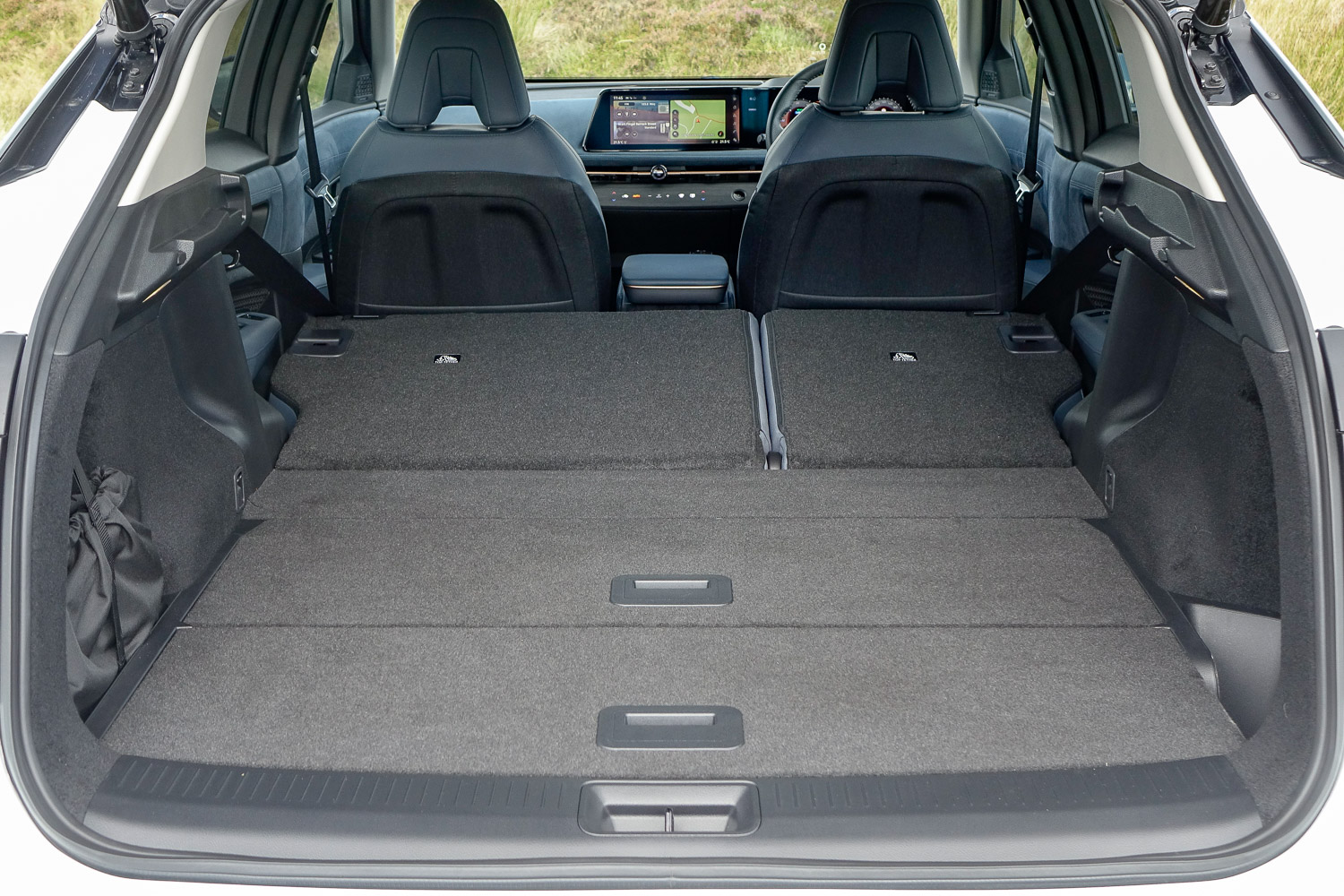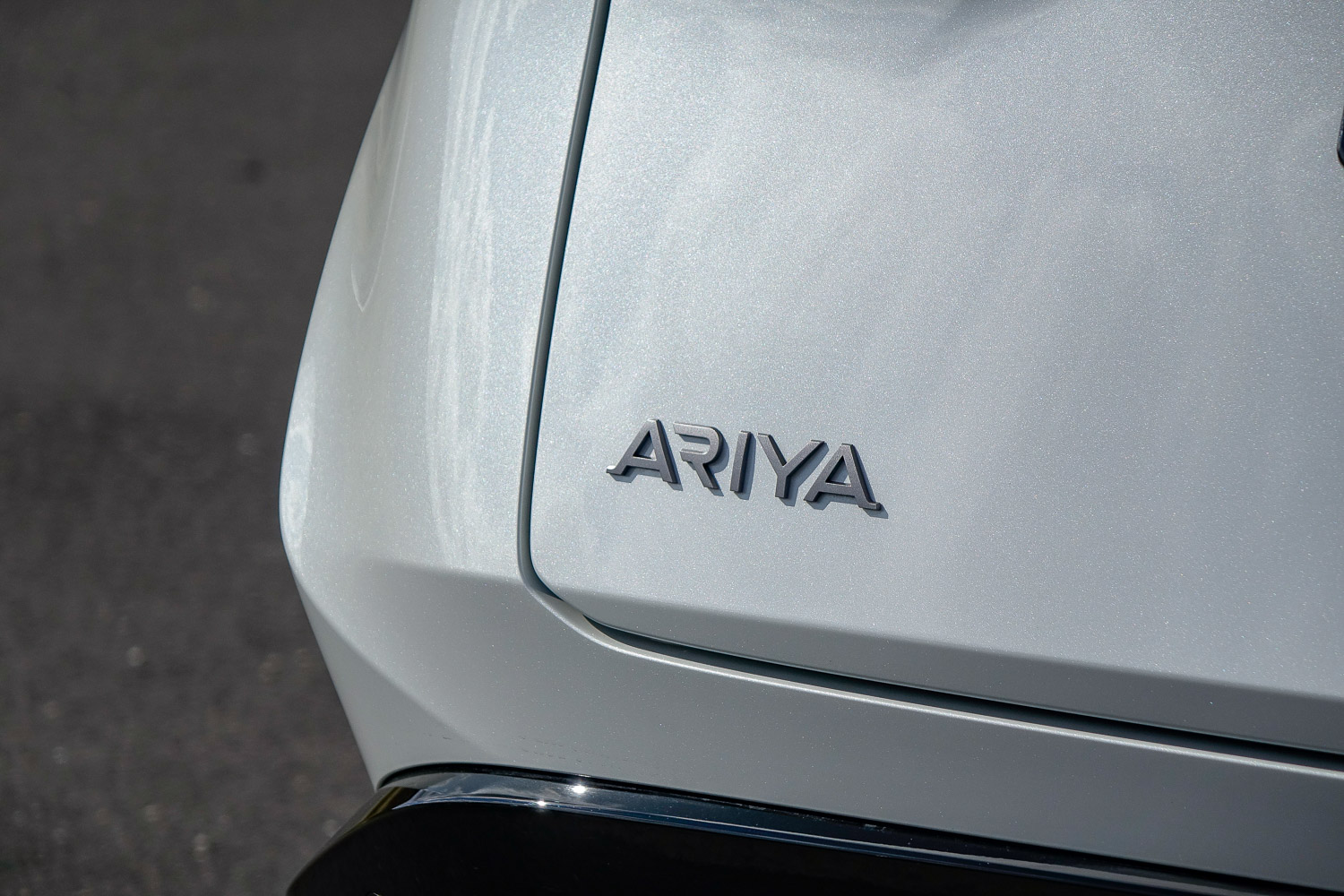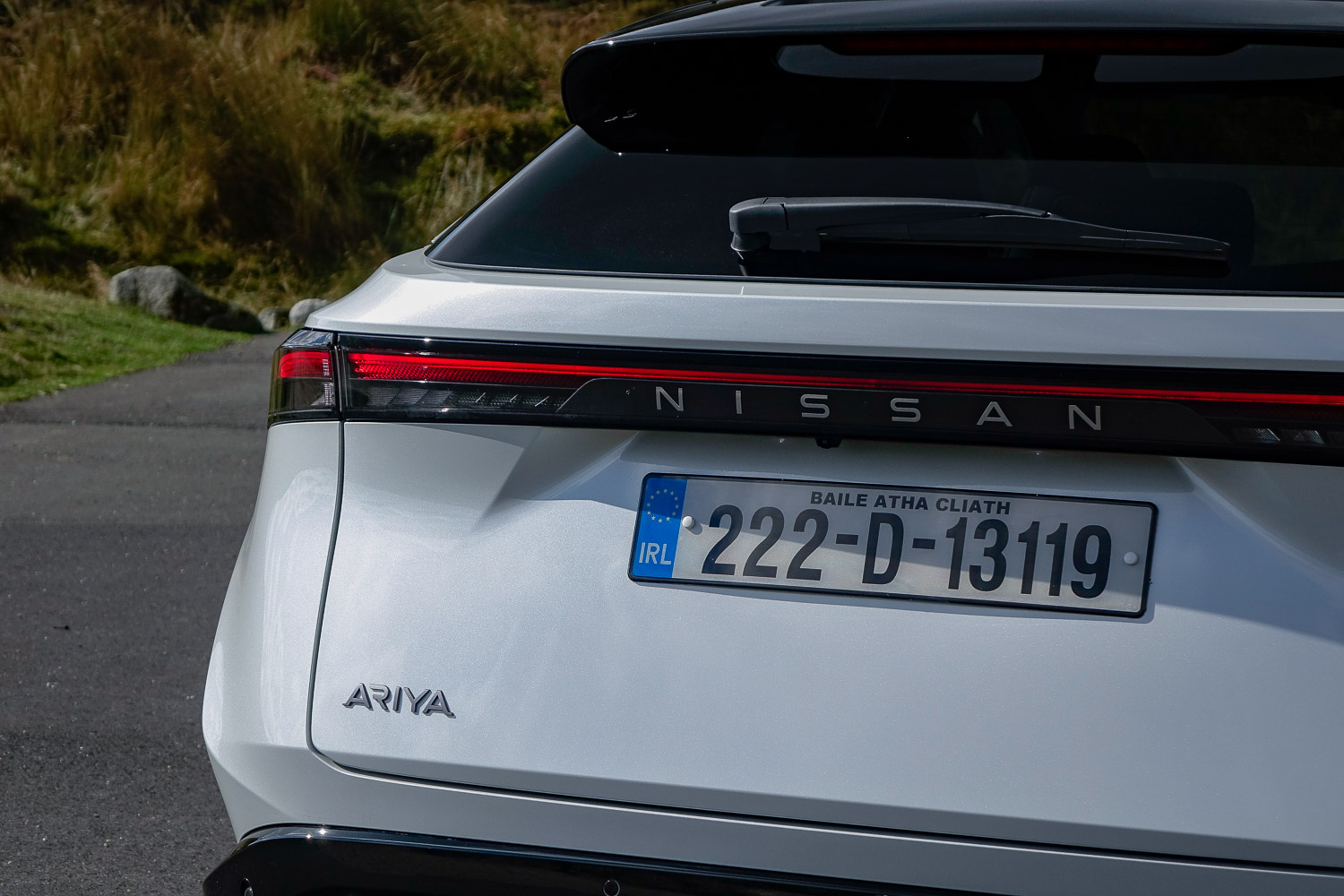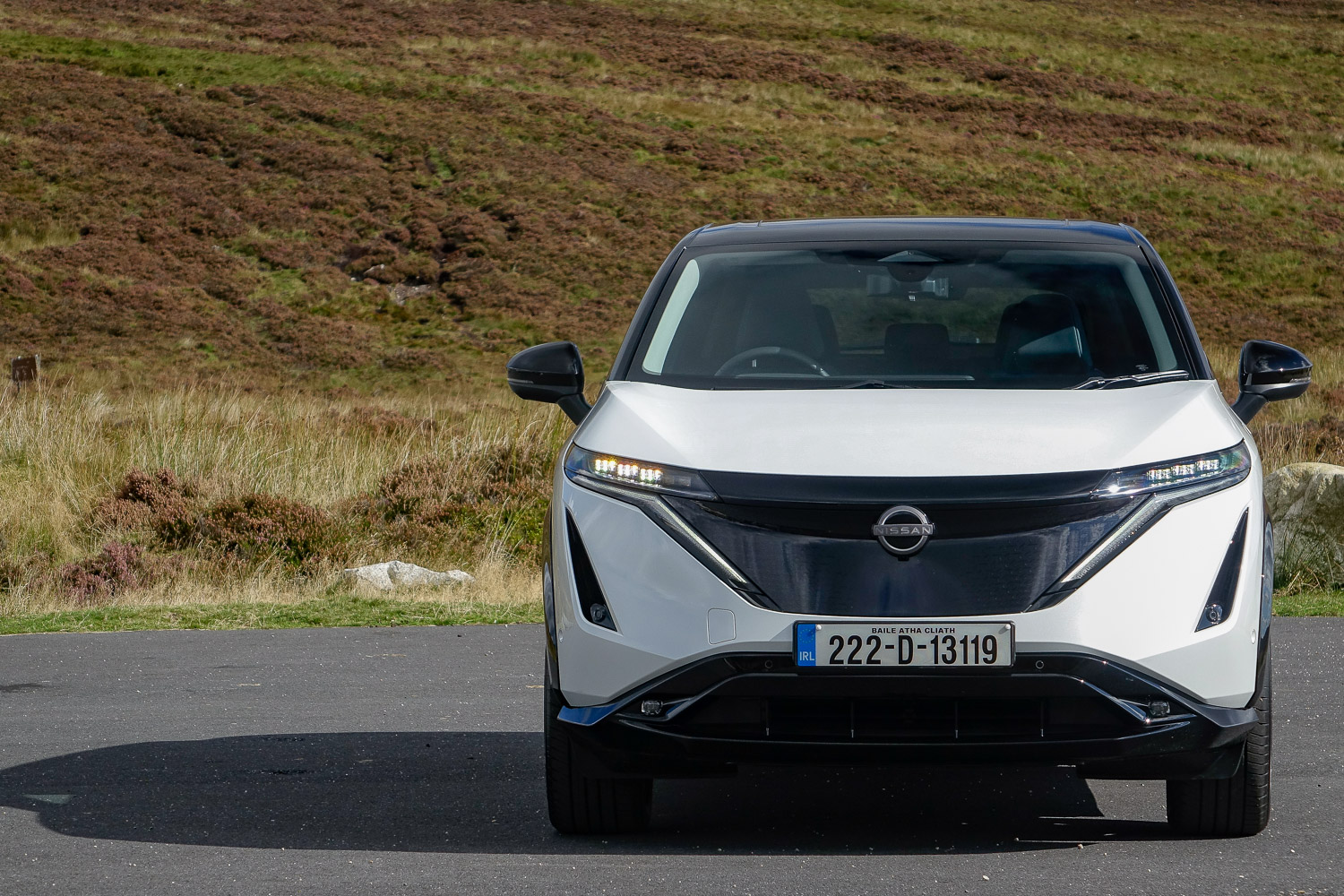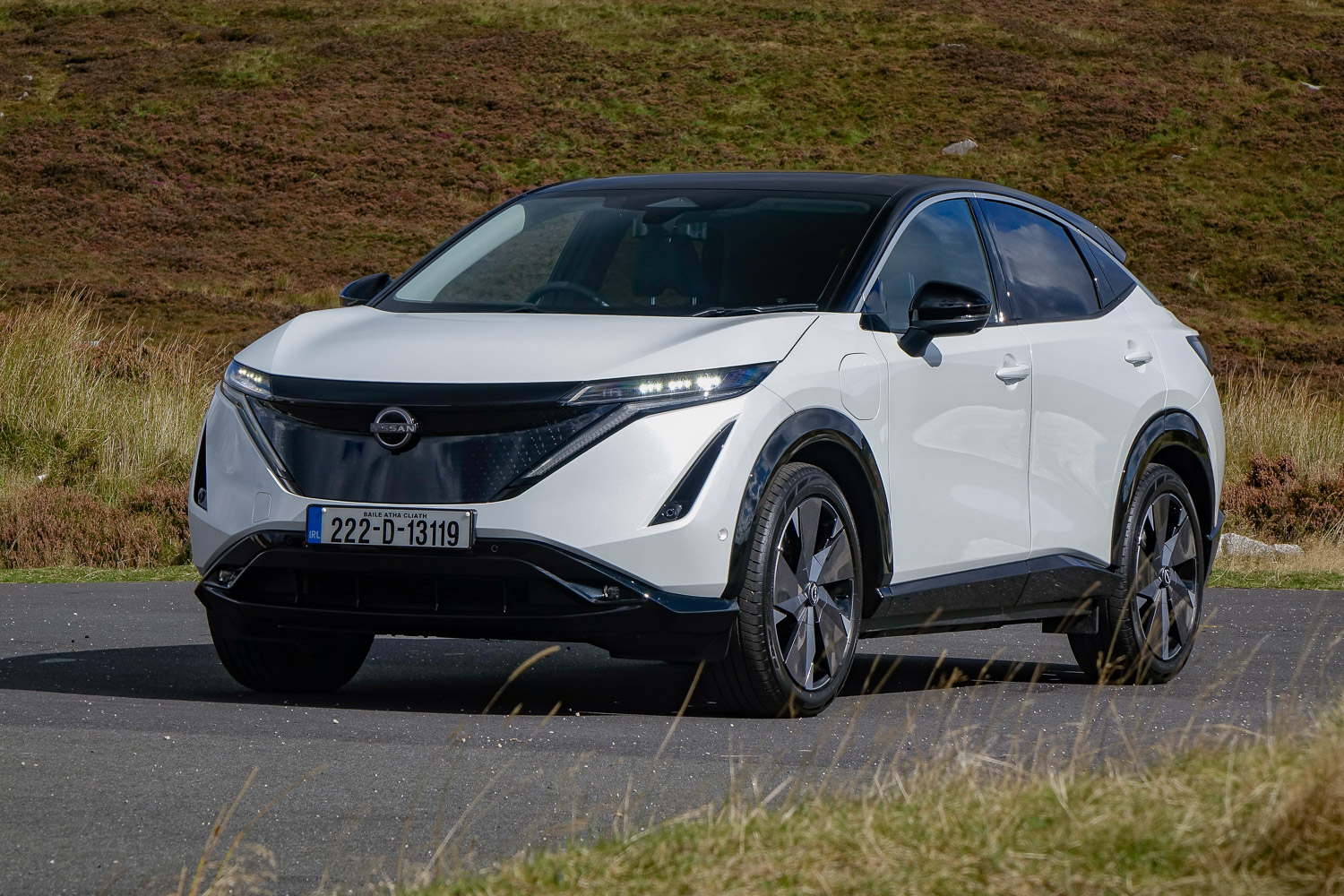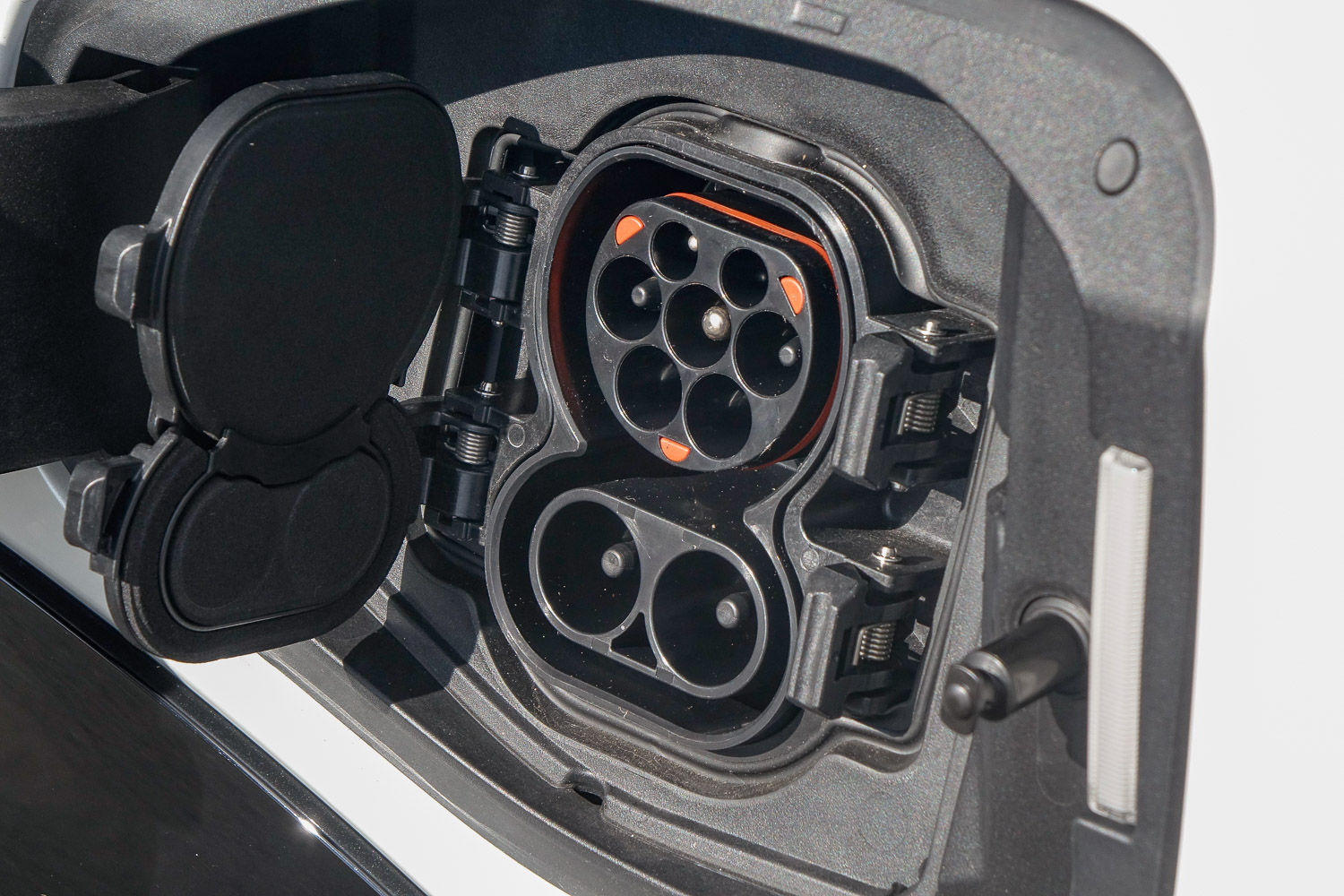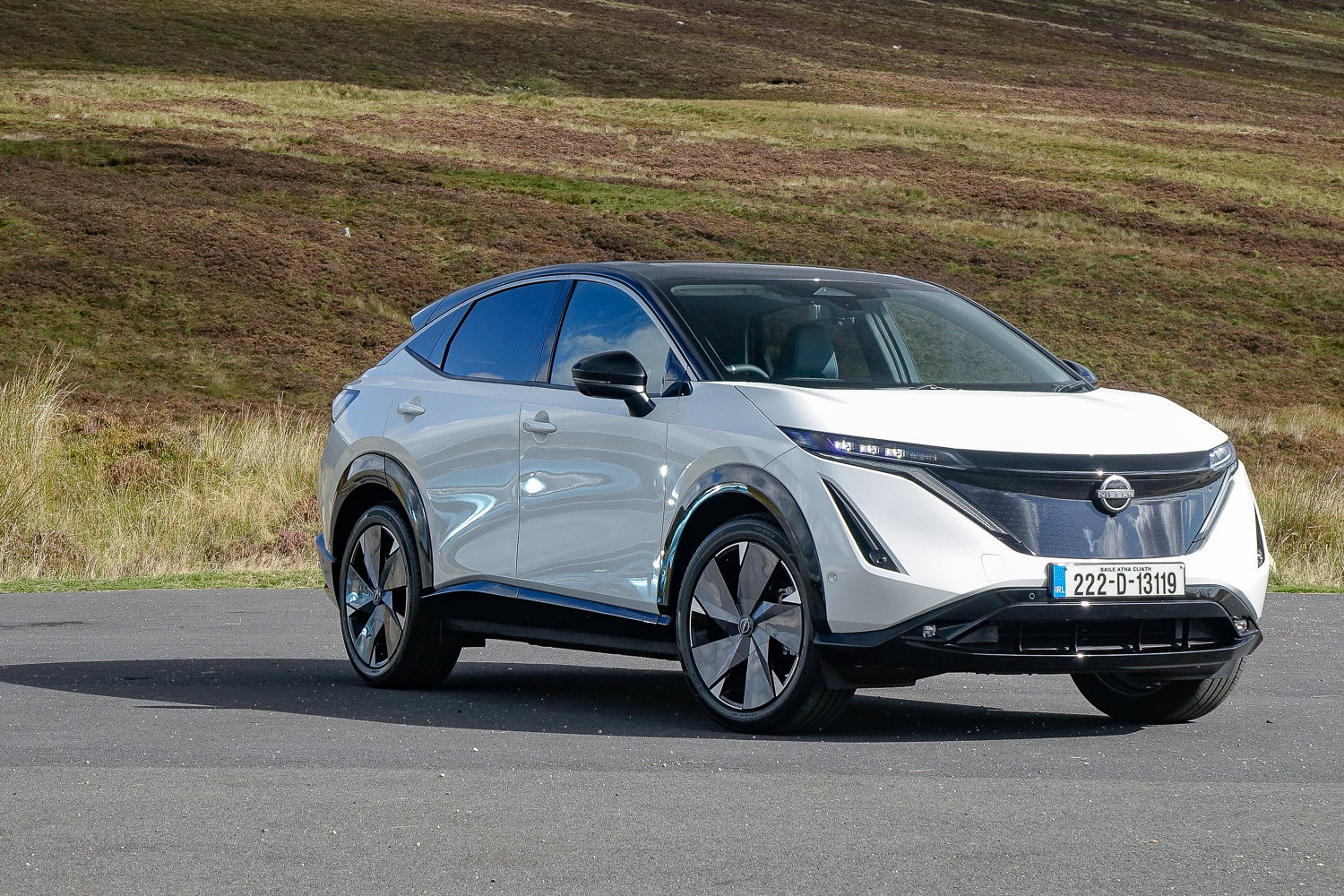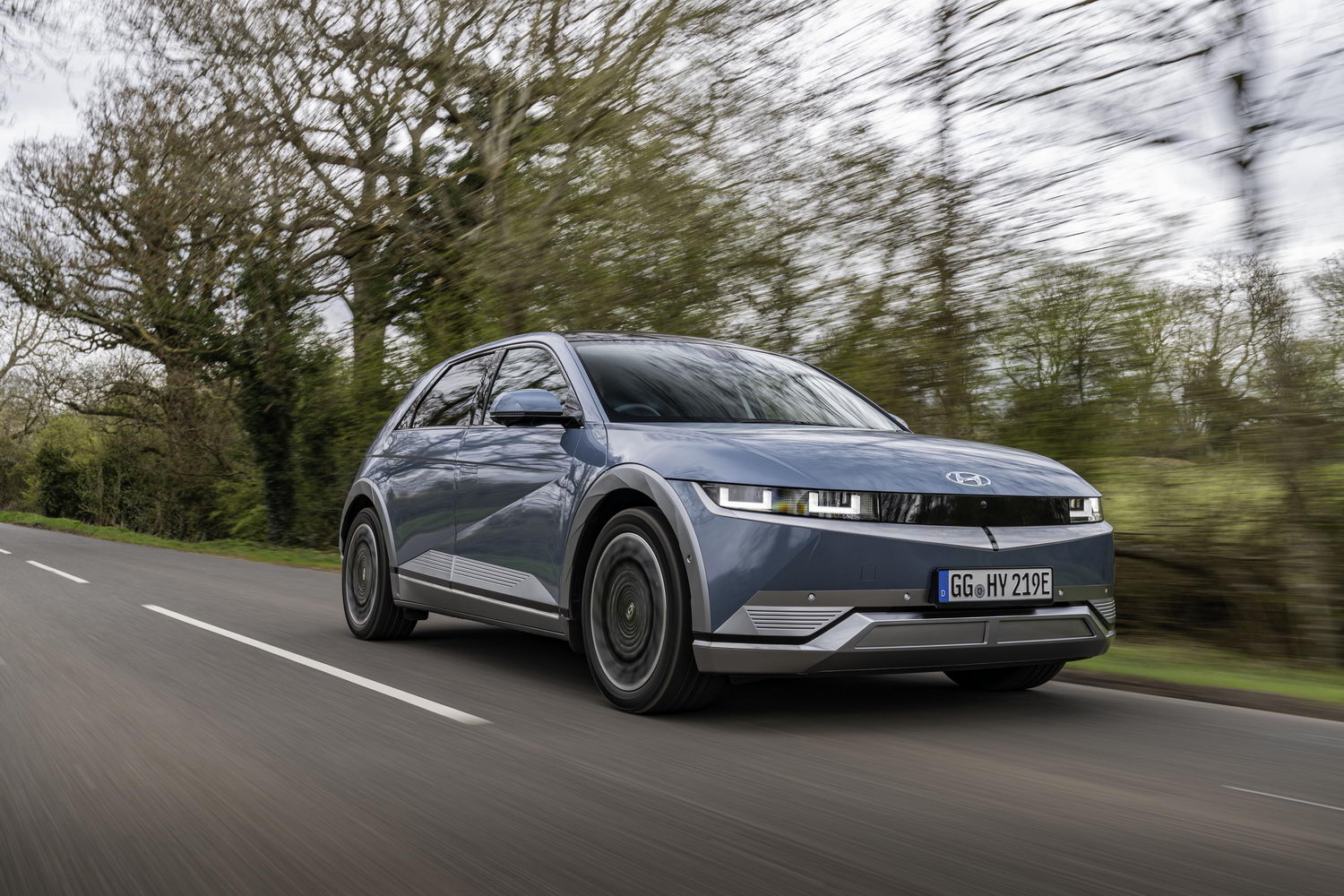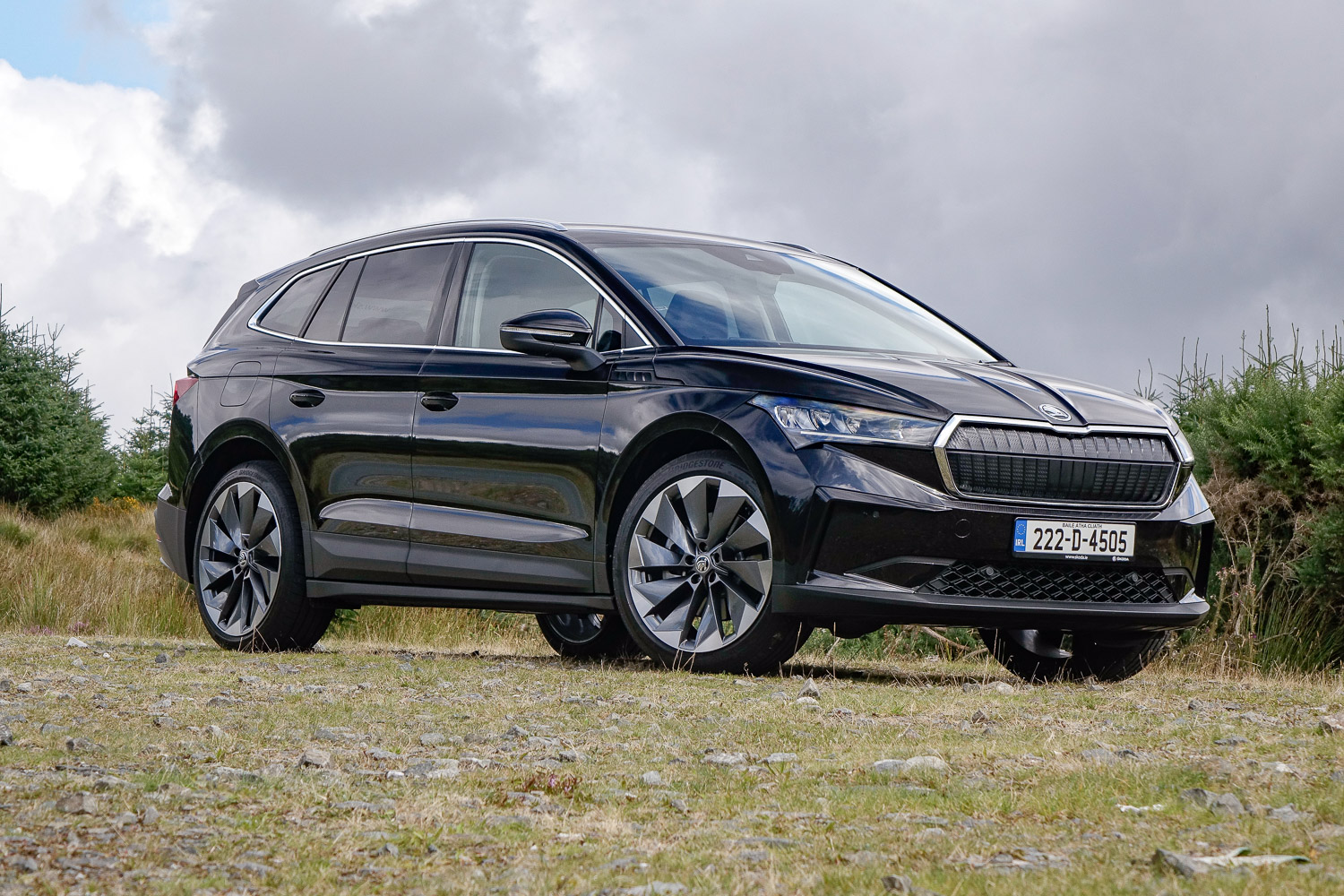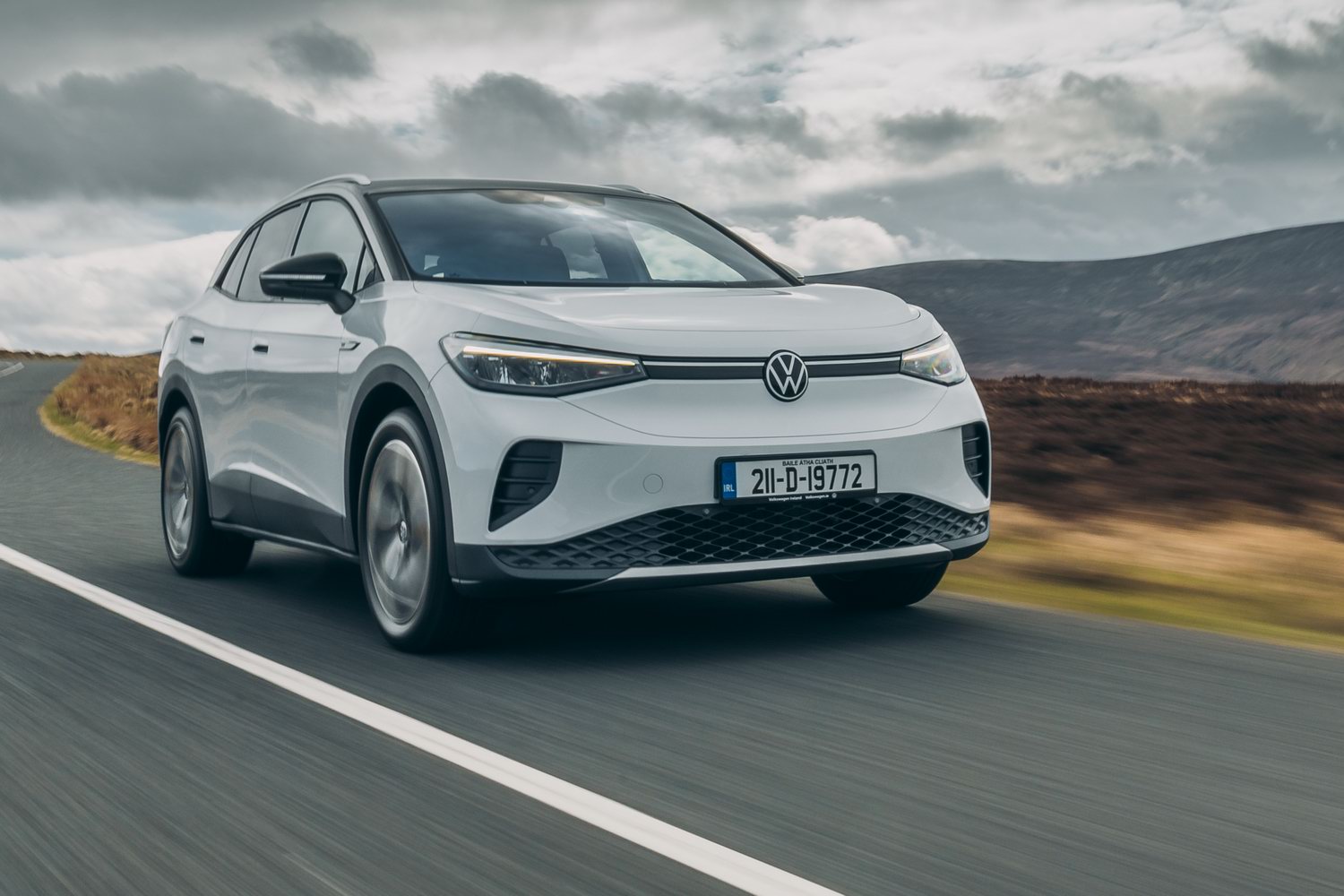Nissan Ariya overview
More than a decade ago, the Nissan Leaf pioneered a new dawn for electric vehicles, bringing zero-emissions drive technology to the masses. But while it was a success, Nissan's electric hatchback has fallen behind the curve when compared with the evolution of EVs. Now Nissan is back with the Ariya, a new generation of all-electric SUV.
Nissan refers to it as a coupe-crossover, and the futuristic body is certainly swoopy. But unlike some cars that are described that way, the Ariya has ample space inside for five passengers and their luggage.
The Ariya uses all-new technology that's been developed from Nissan's experience with the Leaf. That model will continue for now, but the Ariya is a Qashqai-sized SUV with a more design-led philosophy to reflect its hi-tech new underpinnings. The car's dedicated EV platform is shared with another electric newcomer in the shape of the Renault Megane E-Tech Electric, while other rivals include the Skoda Enyaq, Volkswagen ID.4/ID.5, Hyundai Ioniq 5 and Kia EV6.
The Nissan Ariya model range
Irish pricing for the Nissan Ariya starts at €48,995, and the model line-up comprises Advance and Evolve trim levels, with a choice of 63kWh and 87kWh batteries. The smaller pack comes with a 217hp electric motor, while the 87kWh pack has either a 242hp motor, or 306hp for the two-motor, all-wheel-drive model. Advance and Evolve specs are available with all three powertrains.
Charging is accessed via a flap in the passenger side front wing. At a rapid DC charger, the maximum rate is 130kW, meaning the 63kWh battery can be topped up from 10-80 per cent in around half an hour. The larger battery takes longer, of course, but Nissan still claims a 20-80 per cent top-up can also take half an hour. A 7.4kW AC charger is included and it's possible to upgrade to a 22kW unit, to make better use of the public AC charging network.
The Nissan Ariya Advance is pretty generously equipped, with 19-inch alloy wheels, full LED headlights, a heated windscreen and mirrors, auto lights and wipers, privacy glass, twin 12.3-inch screens for the driver and infotainment, 360-degree cameras, adaptive cruise control, wireless Apple CarPlay, automatic parking and a host of safety features.
Move to the Evolve model, and the extra equipment really enhances the Ariya. There's a panoramic opening glass roof, a Bose stereo, adaptive main beam headlights, ventilated front seats, head-up display, a power tailgate, LED ambient lighting and much more.
The line-up is set to expand in time, so make sure you check out the Nissan Ireland website to find the latest offers.
Before we get to the interior, a little bit about the exterior. We think it looks very futuristic, with its smooth front end and lights that remain dark until they're switched on. Our car was helped by its two-tone paintjob and optional 20-inch wheels, which have aerodynamic plastic inserts fitted to them to boost range.
The Nissan Ariya interior
Nissan has focused on making the cabin feel upmarket, with a minimalist design and high-grade materials. The bespoke EV platform creates lots of space inside, while the seats look fantastic and offer plenty of comfort and support. A wide range of adjustment for those seats and steering wheel means it's easy to get comfortable at the wheel, too. The only downside is the use of some hard plastics on the back of the steering wheel, but this really is just nit-picking.
The two large screens on the dashboard are fine, rather than stunning like some rivals (Hyundai and Kia have an advantage in that area), but the Ariya has a novel dashboard layout that blends touch-sensitive buttons with haptic feedback into the surface, rather than having ordinary plastic buttons to press.
The cabin's party piece is the electrically adjustable centre console. This can slide back and forth to create a high-set armrest, or you can move it back to leave a clear floor between driver and passenger. There's another tray that slides out electrically from the dashboard, which is operated via one of the 'hidden' dashboard buttons, and though the way it slowly slides in and out seems over-engineered, the tray's cover feels flimsy in comparison.
You get the usual range of USB charging sockets and a wireless charging pad, too, while covered cup holders also feature and the usual glovebox, but while this is pretty deep, it's not very high.
In the back, the Ariya's dedicated EV platform means there's a completely flat floor, so there's decent space for feet, while leg- and headroom are also good, even with our car's panoramic glass roof. Luxuries in the back include air vents and USB sockets, and the doors open wide to offer good access - there are ISOFIX points on the outer rear seats, as well as on the front passenger seat. Soft white ambient lighting features in the doors and floor, which adds a classy touch throughout the cabin.
At the back, the boot is a decent size. The top-spec Evolve model has a power-operated tailgate and there's a movable floor, similar to what you get in a Nissan Qashqai. It's movable in two sections, and can be used to house the charging cables under the false floor, or raised to offer a completely flat cargo area with the back seats folded. It's all notably of high quality.
The Nissan Ariya driving experience
The Nissan Ariya is a great EV to drive, with responsive steering and taut body control when you're pressing on. It corners flatly, but the downside of this engaging element to the driving experience is that the Ariya does feel rather firm. It's not as uncomfortable as a Tesla Model Y in that regard, but the VW ID.4 and Skoda Enyaq have an advantage over the Nissan. Saying that, our test car wore larger alloy wheels than standard, with lower-profile tyres, and those are likely to have worsened the situation. See if you can get a test drive on the standard wheels before you decide to buy.
While rivals send their power to the rear wheels or all four, the Ariya is front-wheel drive. With 242hp on tap, that could cause the chassis to struggle, but Nissan has done a good job with the power delivery, and traction isn't an issue. Take things easy, and the Ariya is exceptionally quiet and refined. It's helped by the addition of double-glazed side glass.
The e-Pedal set-up allows you to drive using one pedal most of the time - modulating the accelerator to slow down as well as speed up - and is a system that was first seen in the Nissan Leaf hatchback. If you don't like how this works, there's also an enhanced brake energy regeneration mode, selectable from the stubby drive selector on the centre console.
According to the Ariya's trip computer, we averaged around 20kWh/100km during our time with the car, including some faster back-road sections, in the process, though no long motorway journey.
Our verdict on the Nissan Ariya
The Nissan Ariya is a strong contender in the electric SUV sector, and should be on any potential buyer's shortlist. It breaks the mould in terms of design and it doesn't look like anything else in the Nissan line-up. The new EV platform delivers plenty of space and decent handling, too. The ride is a little on the firm side, but it's not the worst car in the sector in that regard, while refinement and comfort are first rate. Combine this with a design-led interior with lots of neat touches, and Nissan should be on to a winner.

